

March 28 - April 19, 2025
Group show
Curated by Eugene Huston
“It makes me uncomfortable to talk about meanings and things. It’s better not to know so much about what things mean.
I don’t think that people accept the fact that life doesn’t make sense. I think it makes people terribly uncomfortable. Absurdity is what I like most in life. I learned that just beneath the surface there’s another world, and still different worlds as you dig deeper.
I discovered that if one looks a little closer at this beautiful world, there are always red ants underneath.”
David Lynch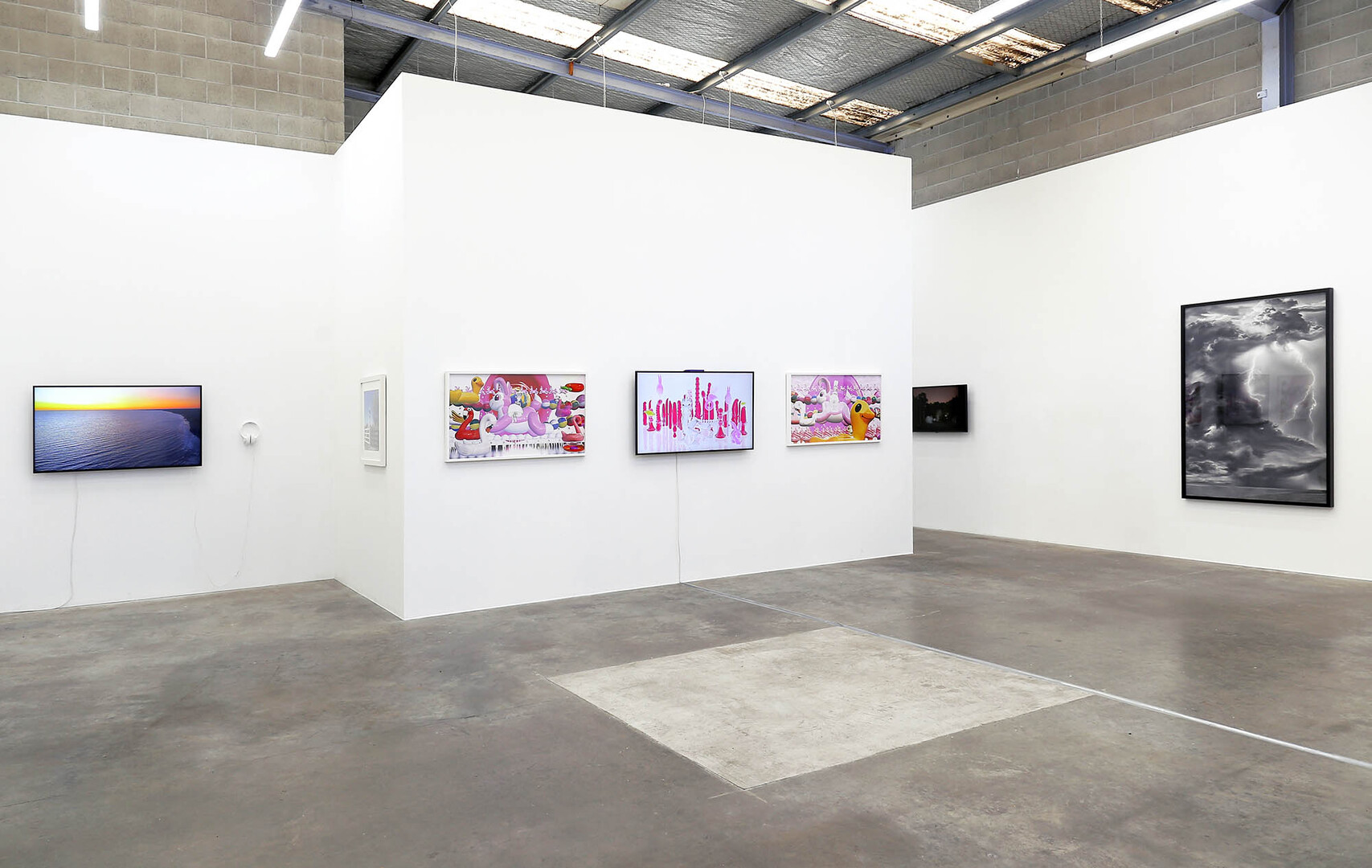
Installation view - front gallery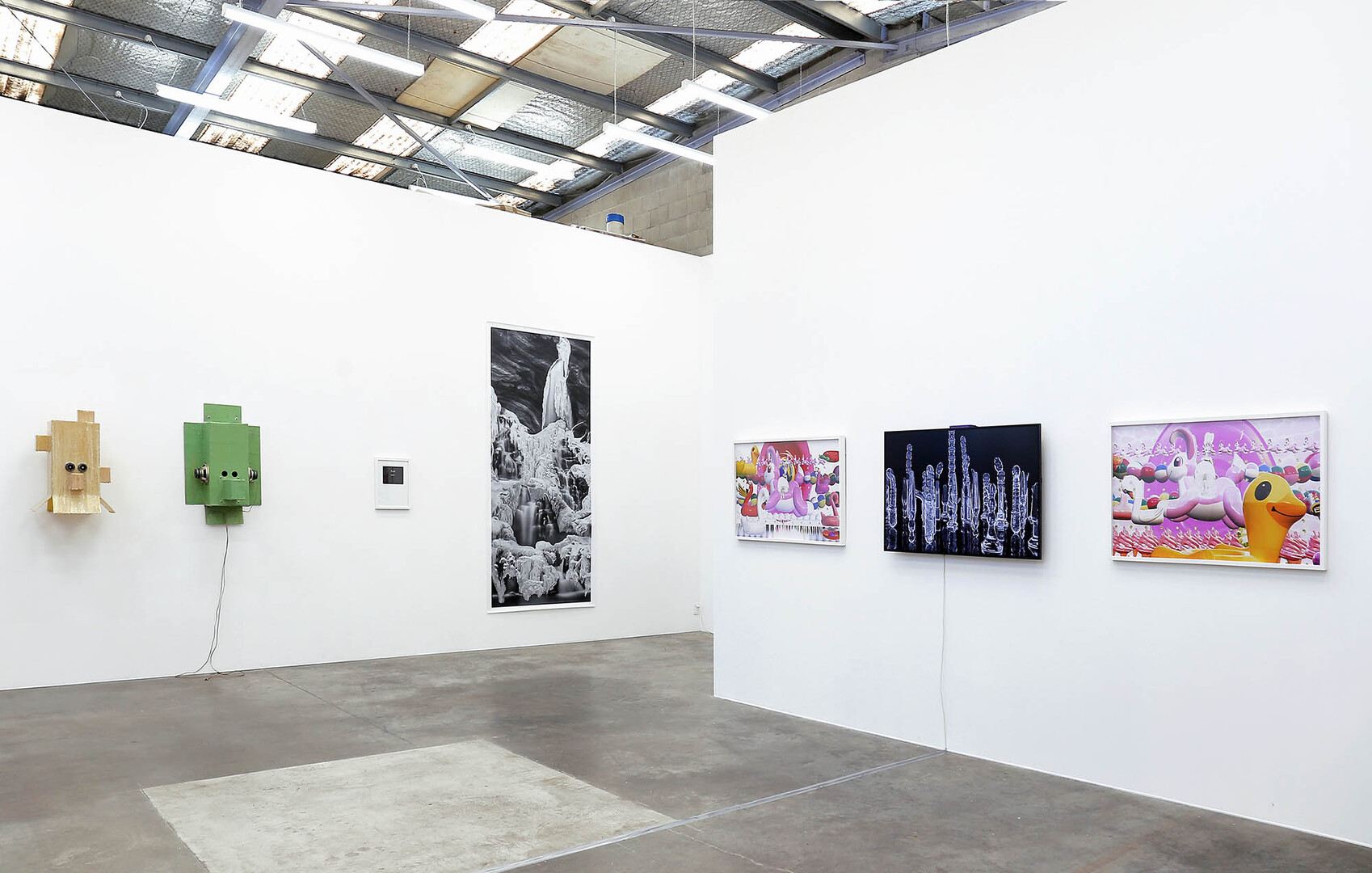
Installation view - front gallery
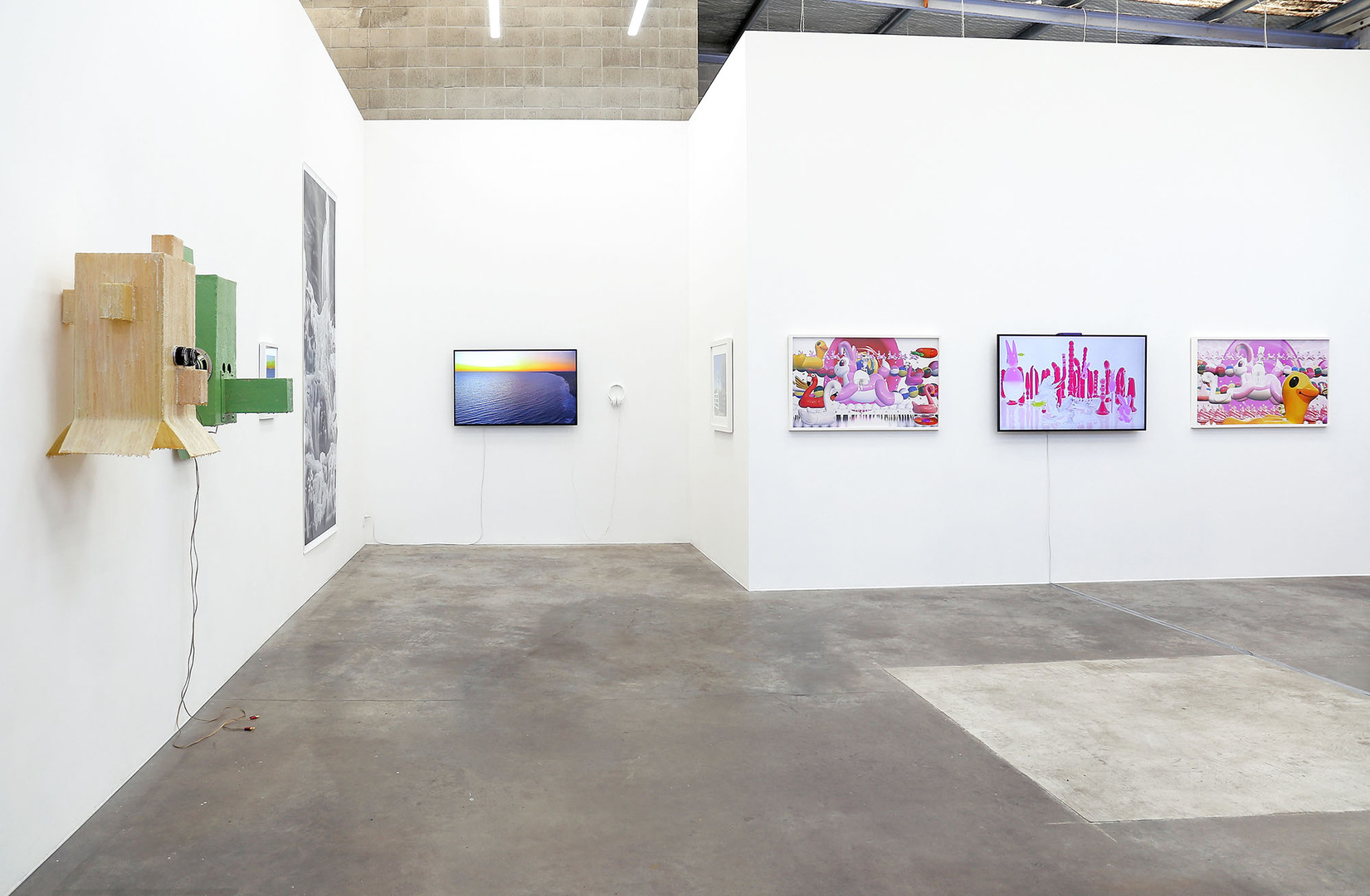
Installation view - front gallery
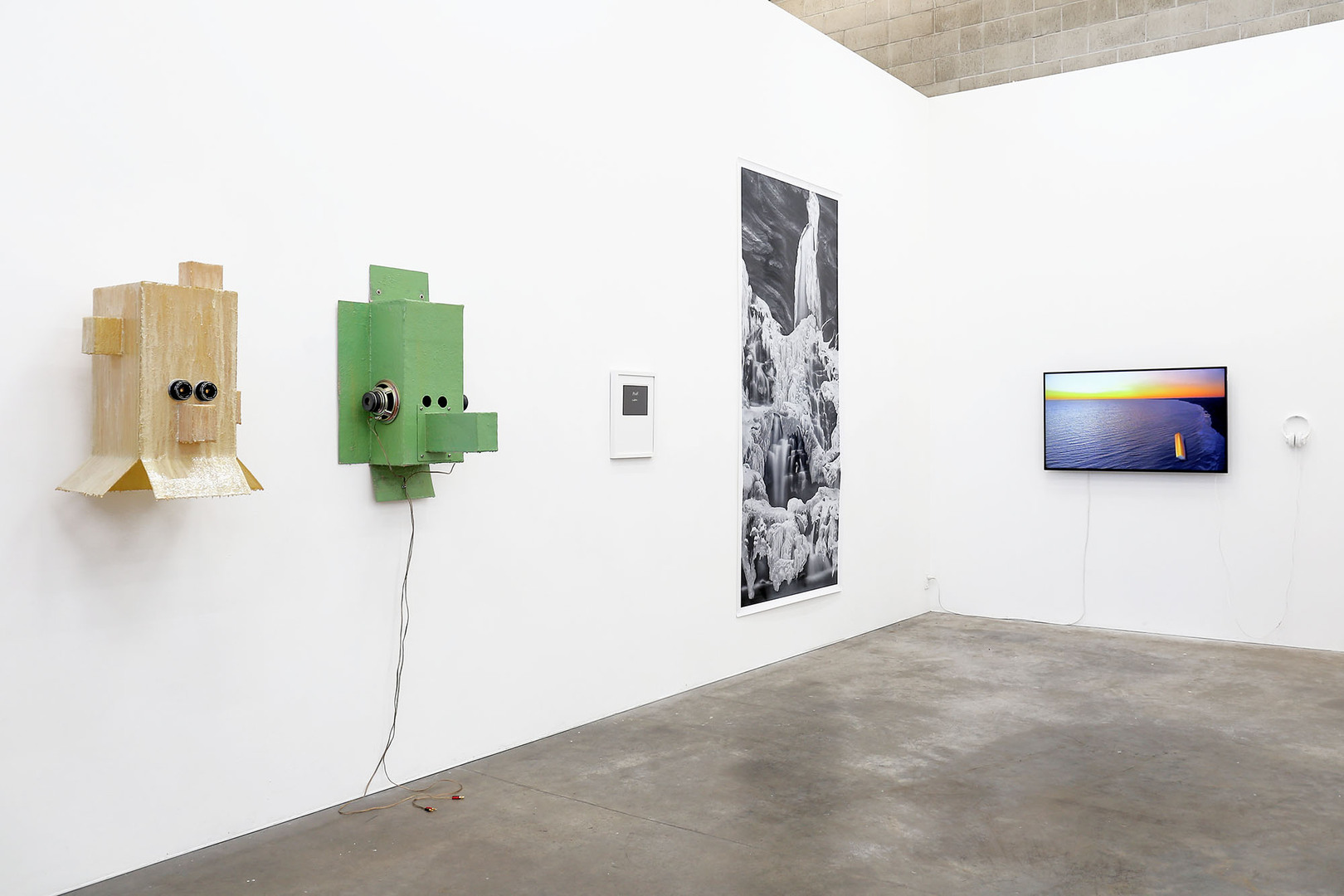
Installation view - front gallery
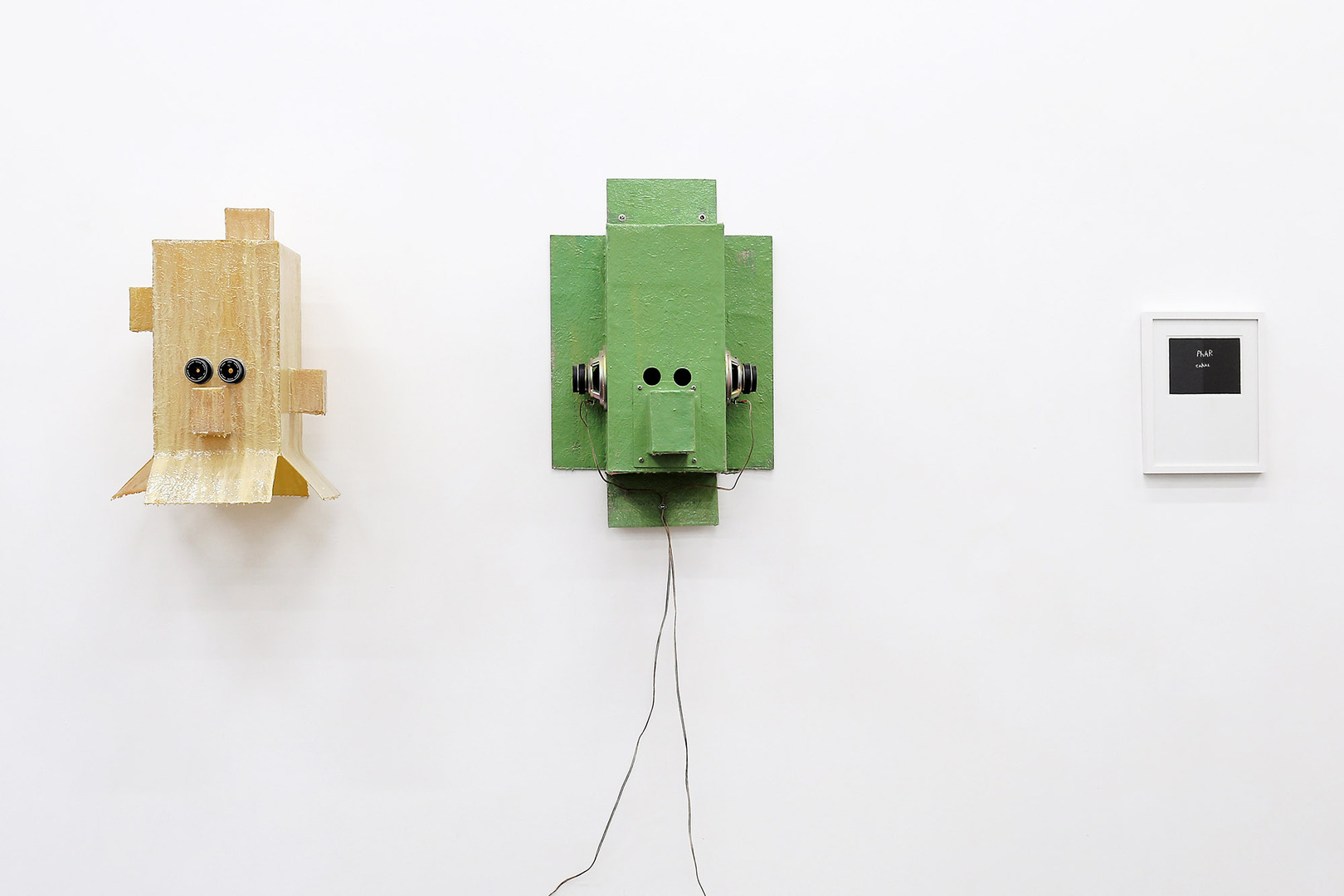
Installation view - front gallery
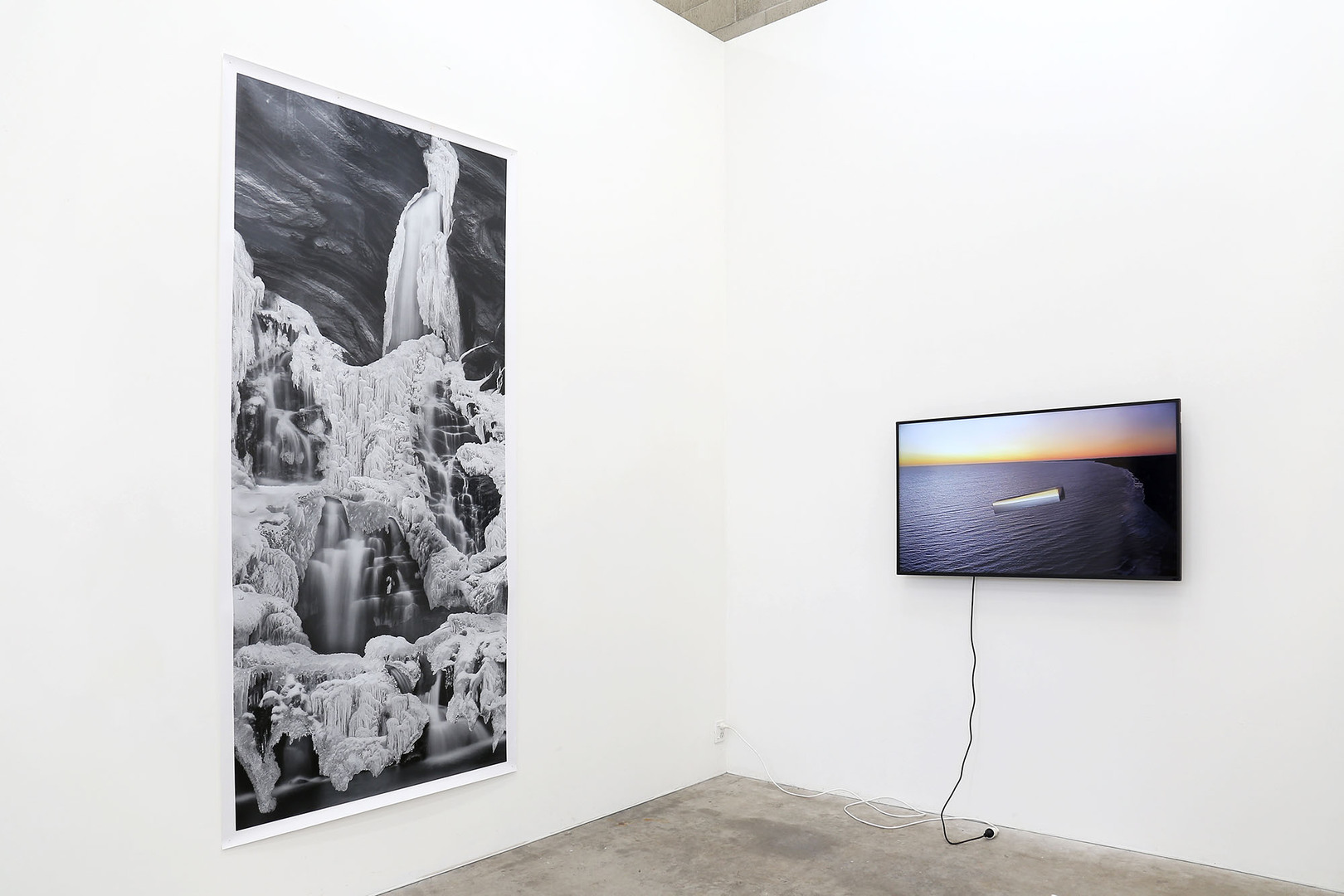
Installation view - front gallery
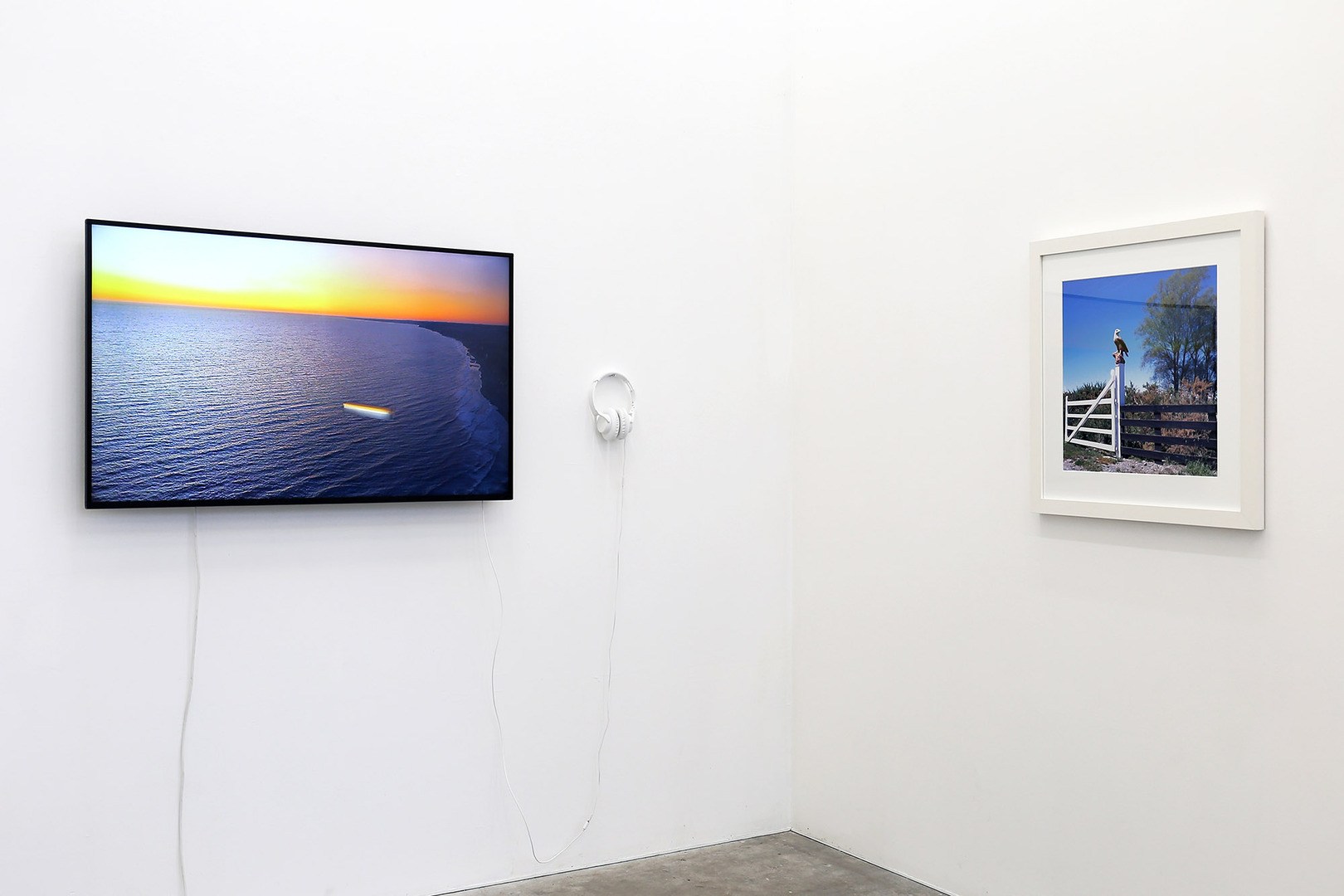
Installation view - front gallery
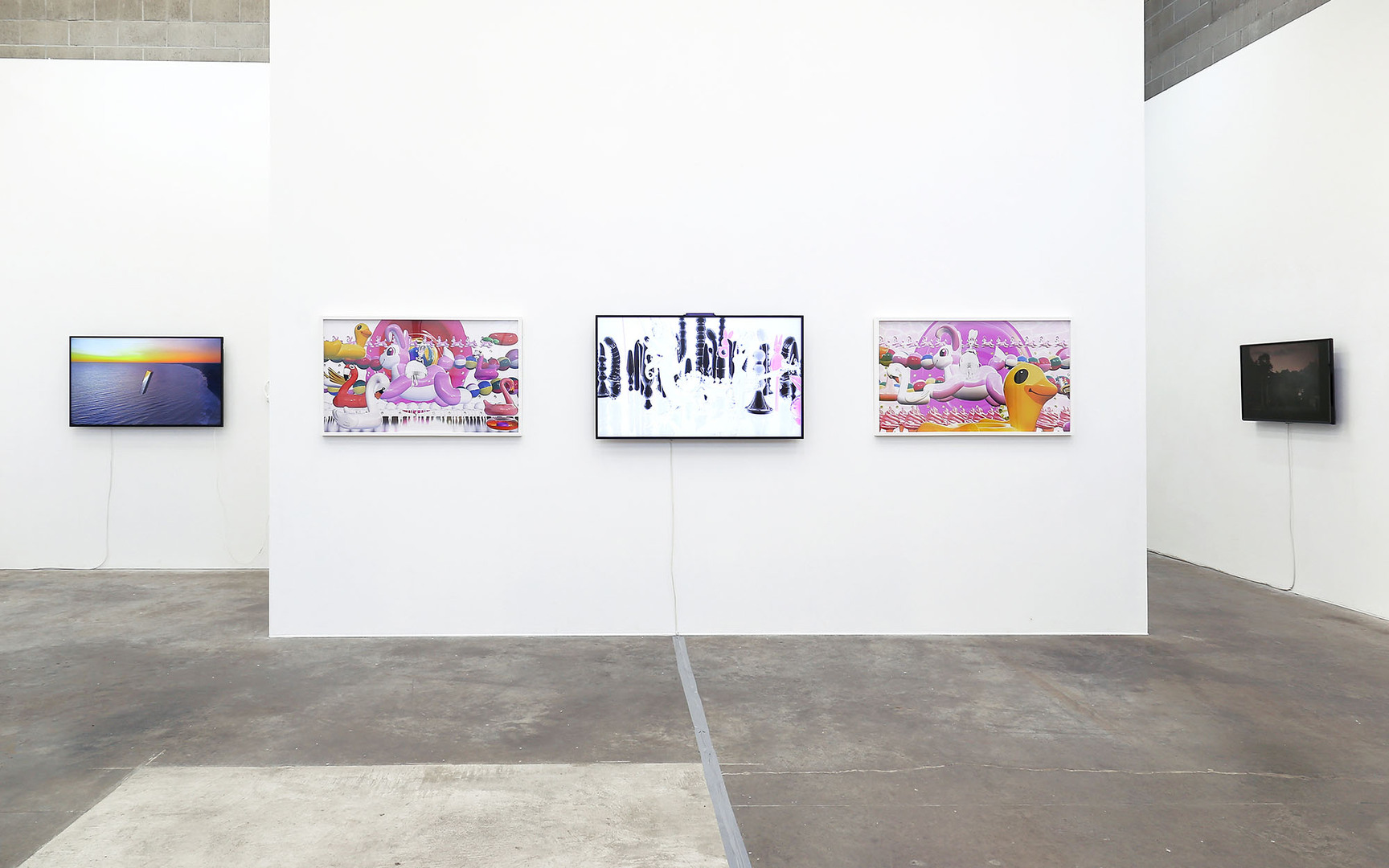
Installation view - front gallery
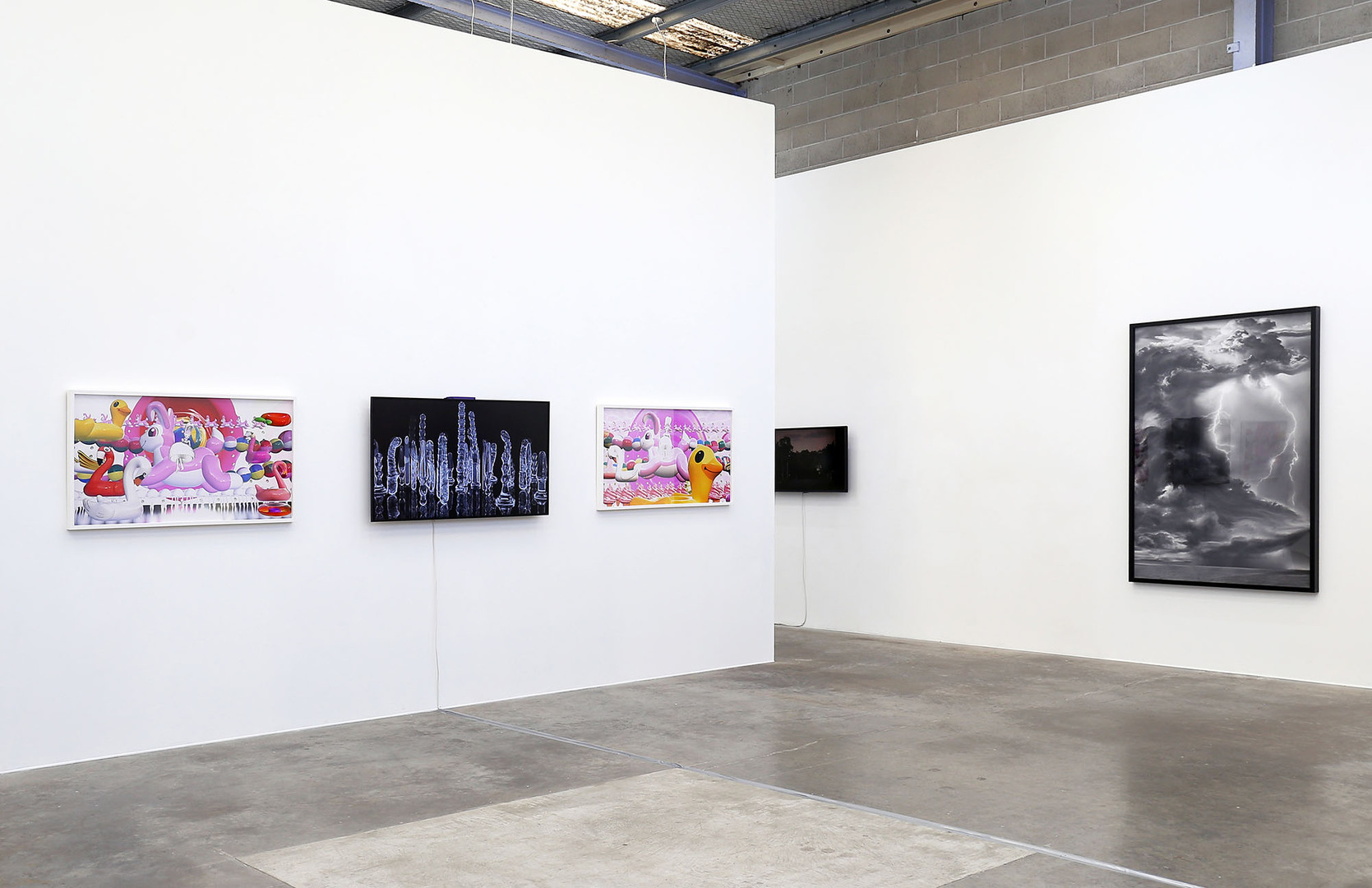
Installation view - front gallery
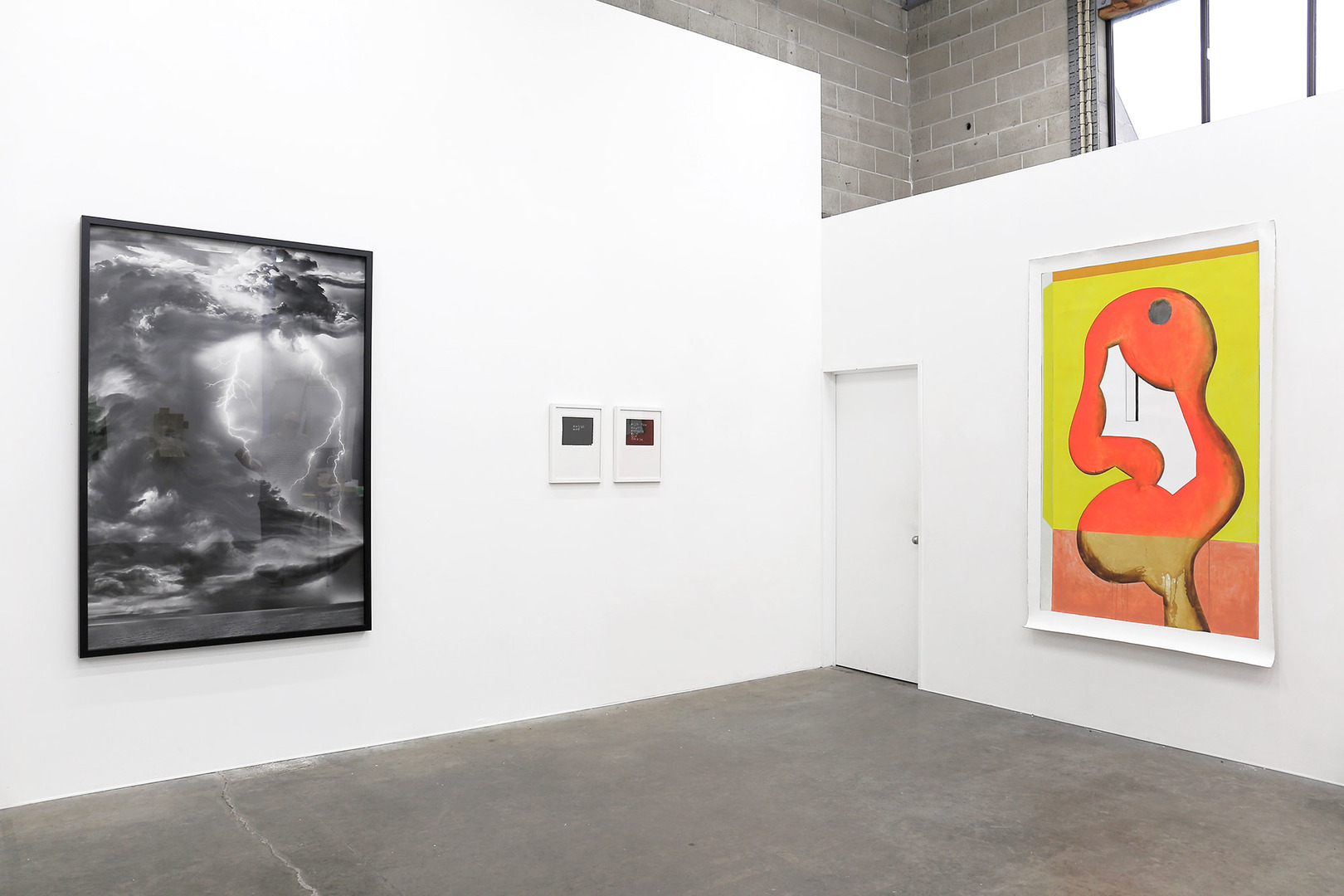
Installation view - front gallery
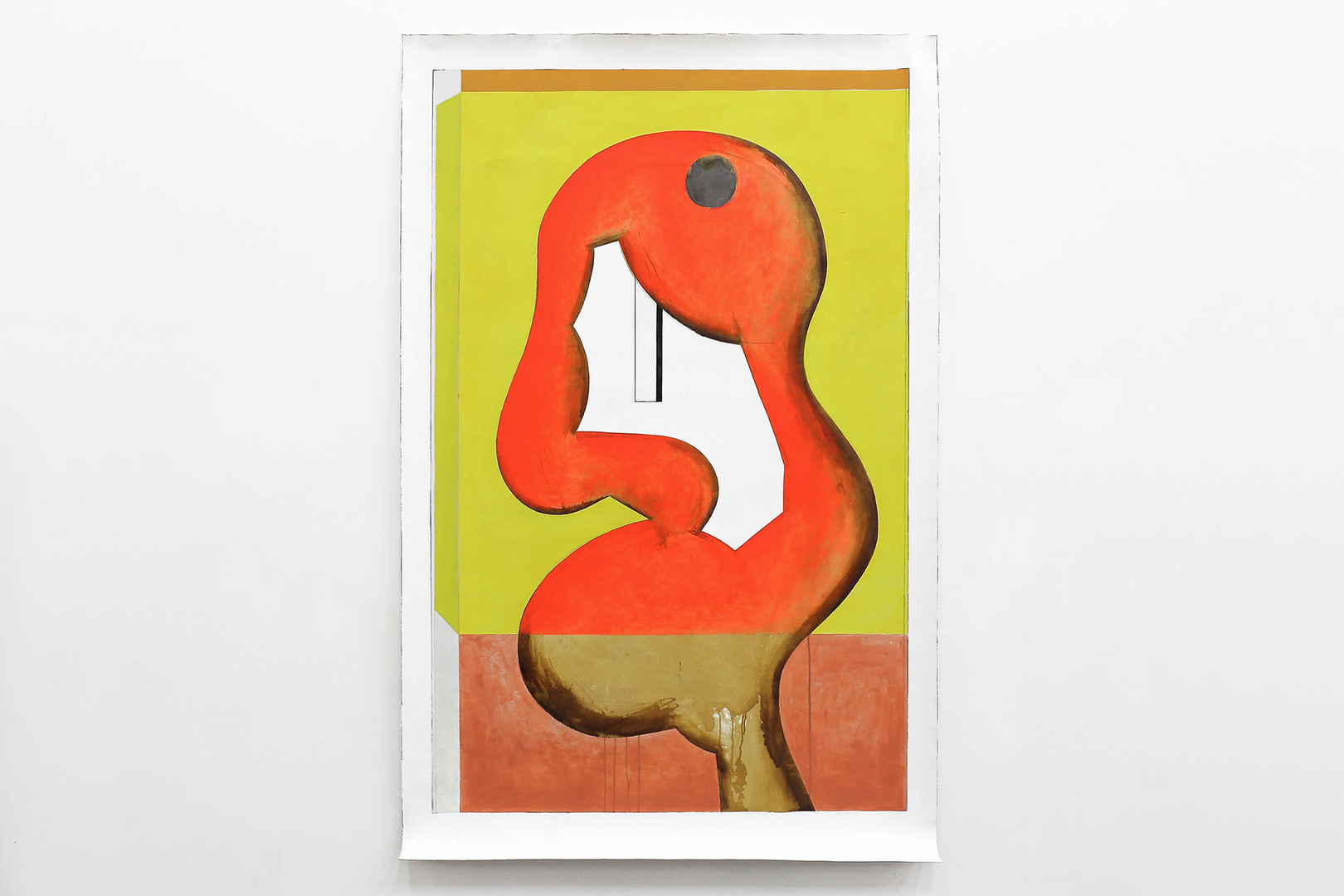
Installation view - front gallery
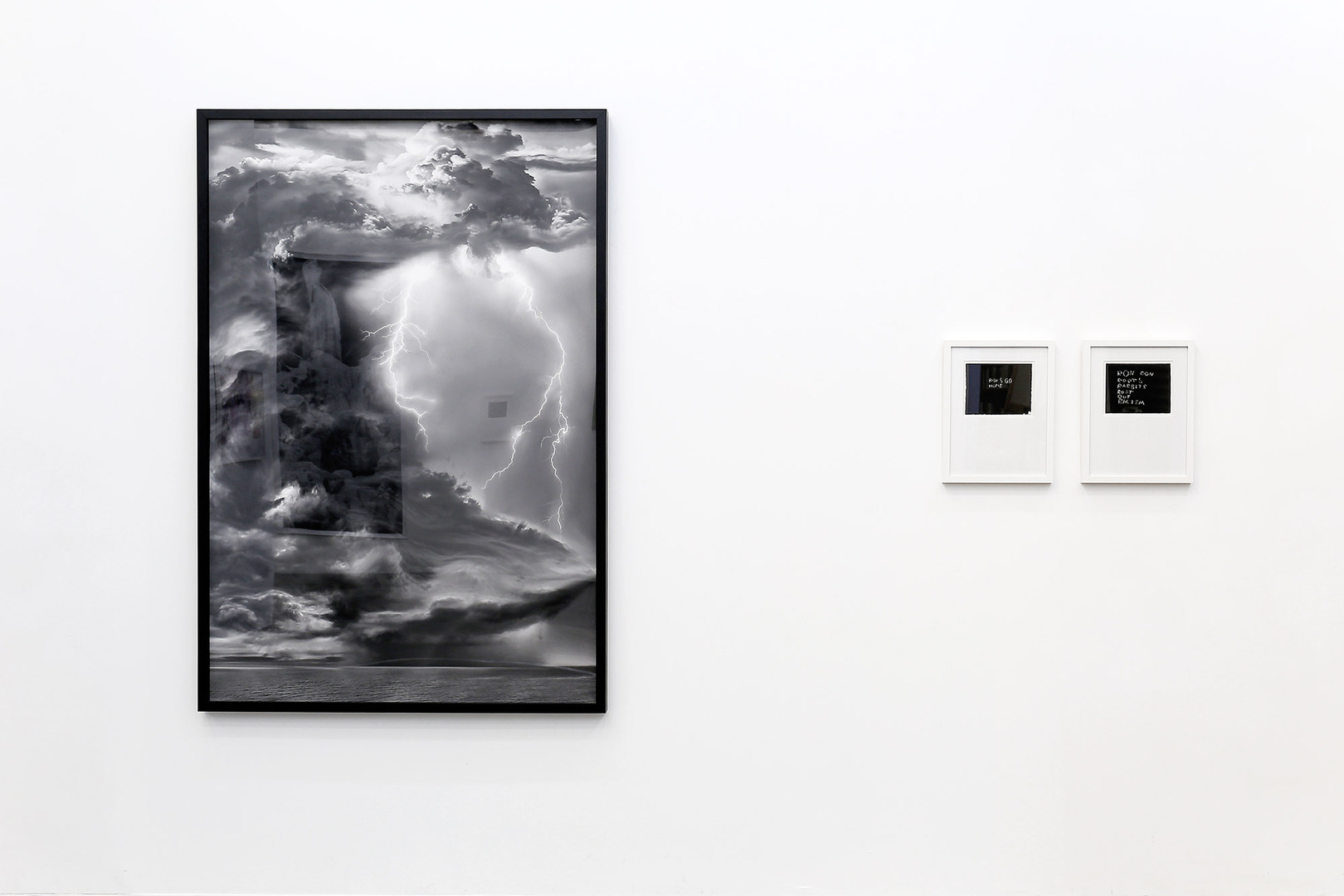
Installation view - front gallery
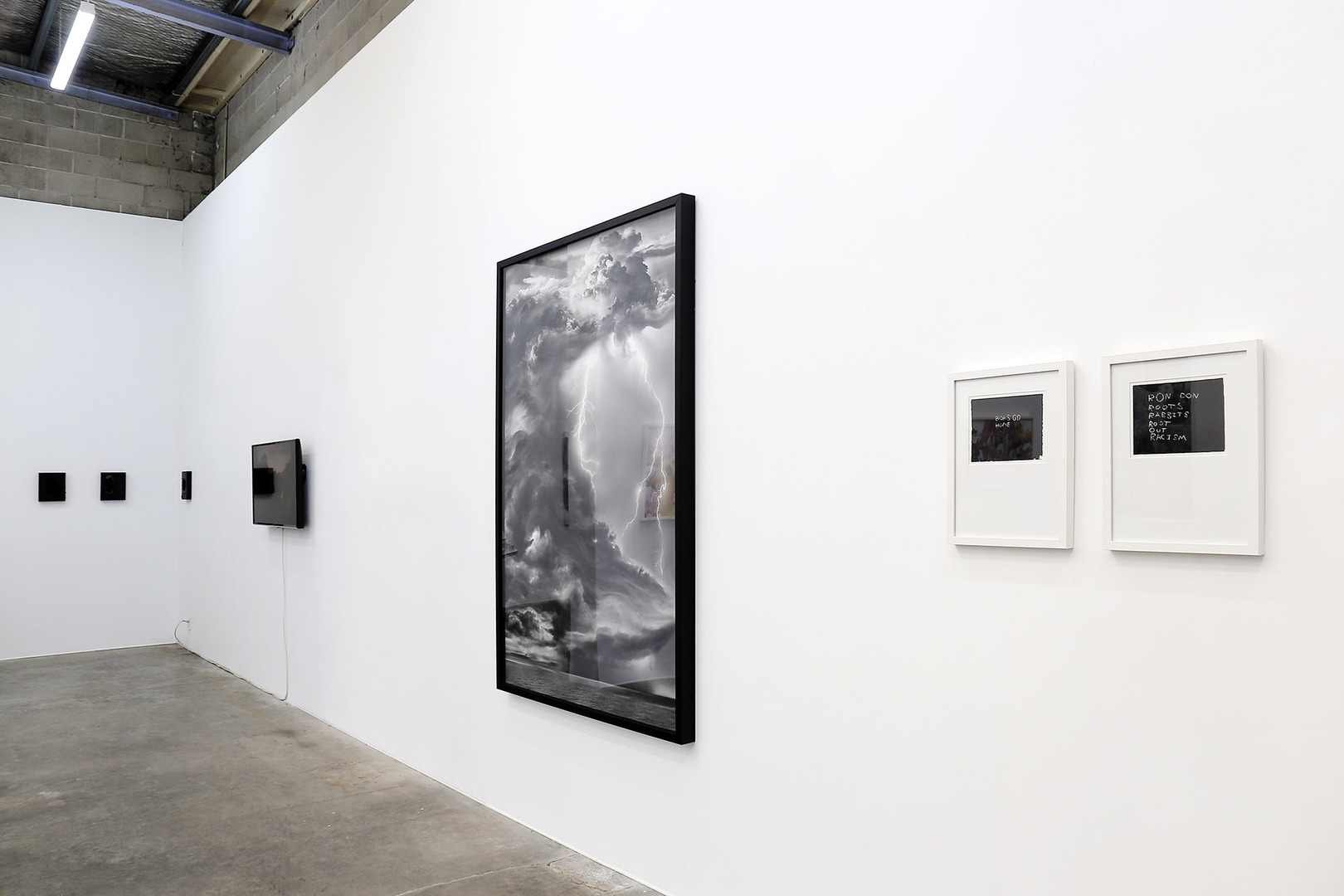
Installation view - front through to back gallery
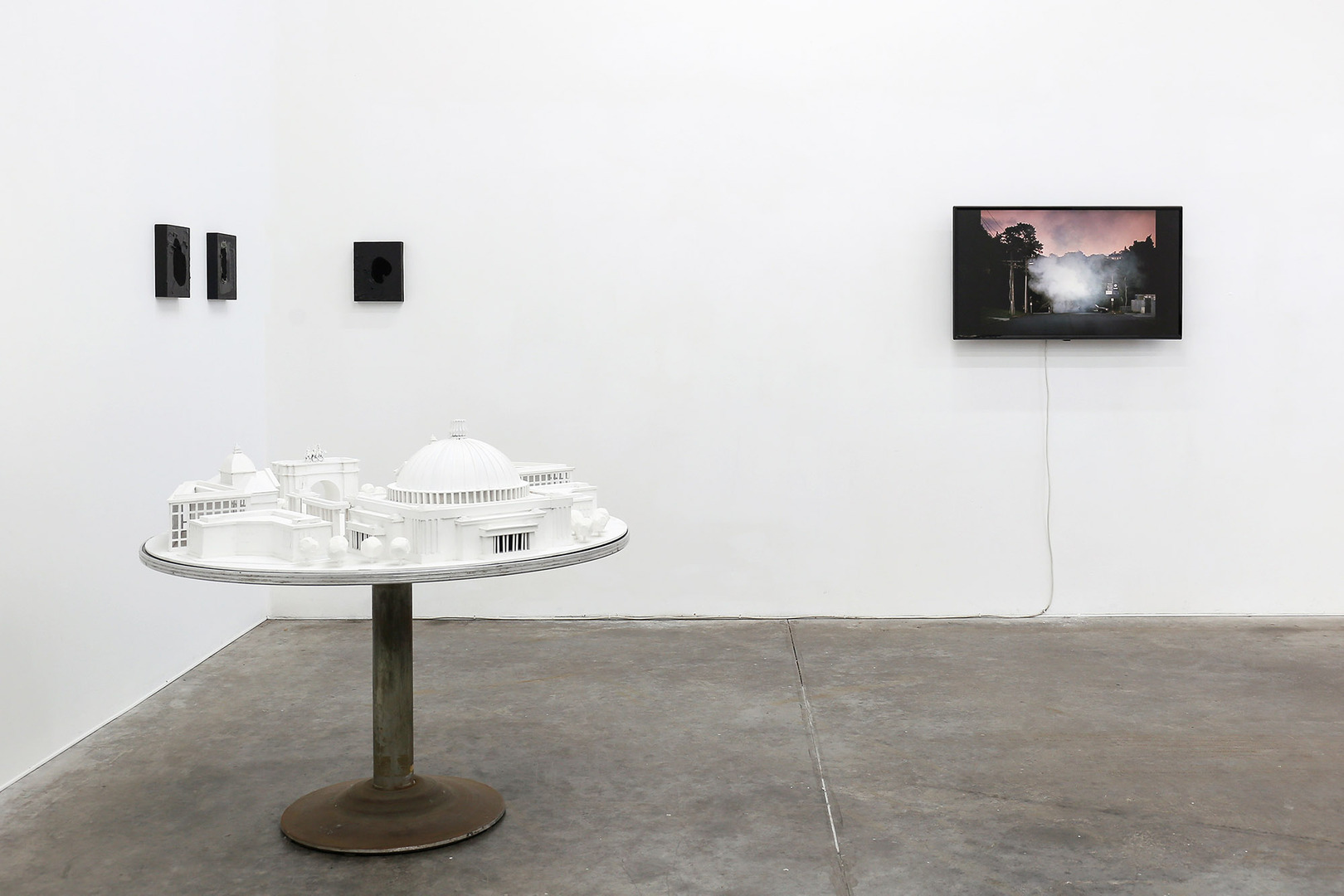
Installation view - back gallery
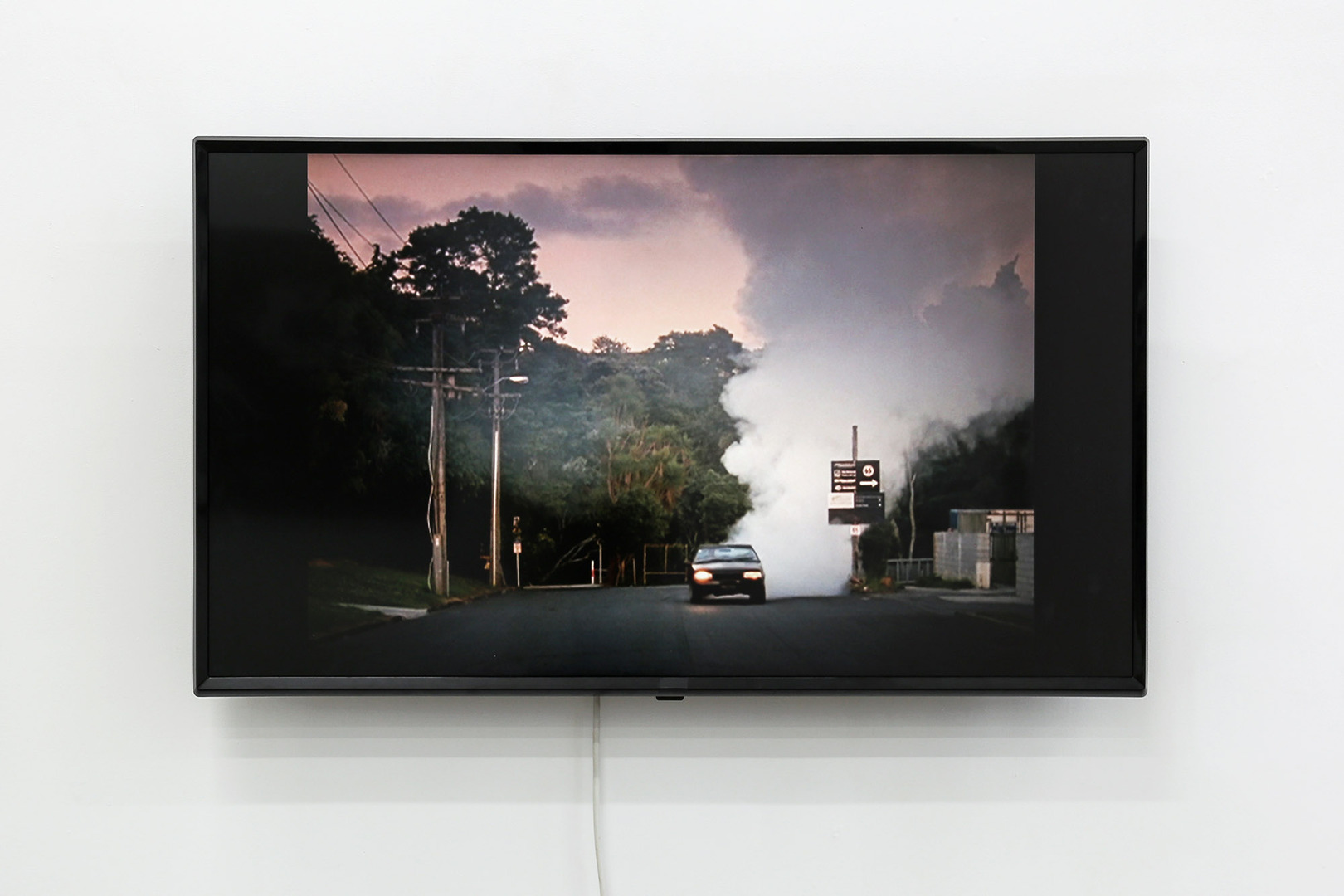
Installation view - back gallery
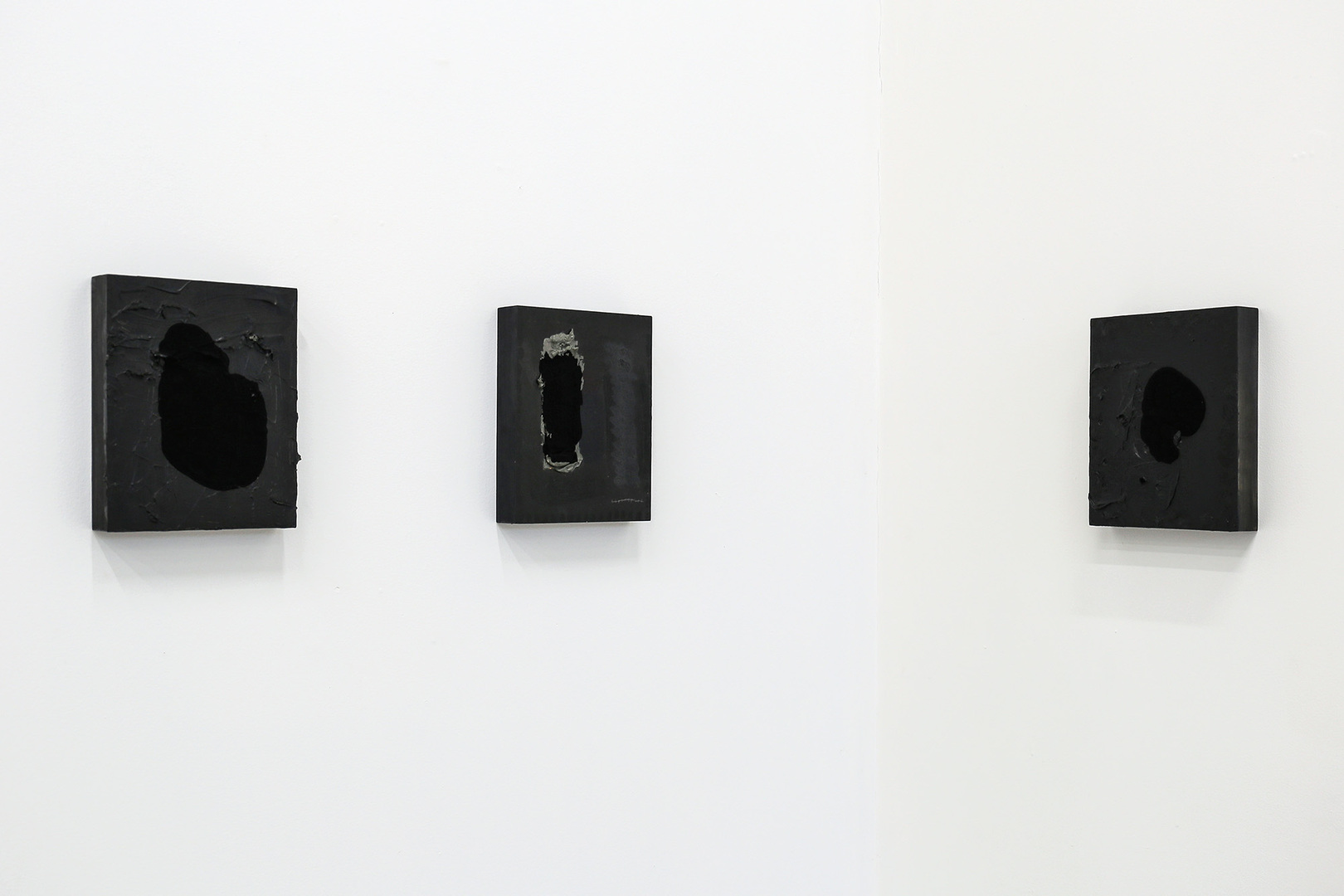
Installation view - back gallery
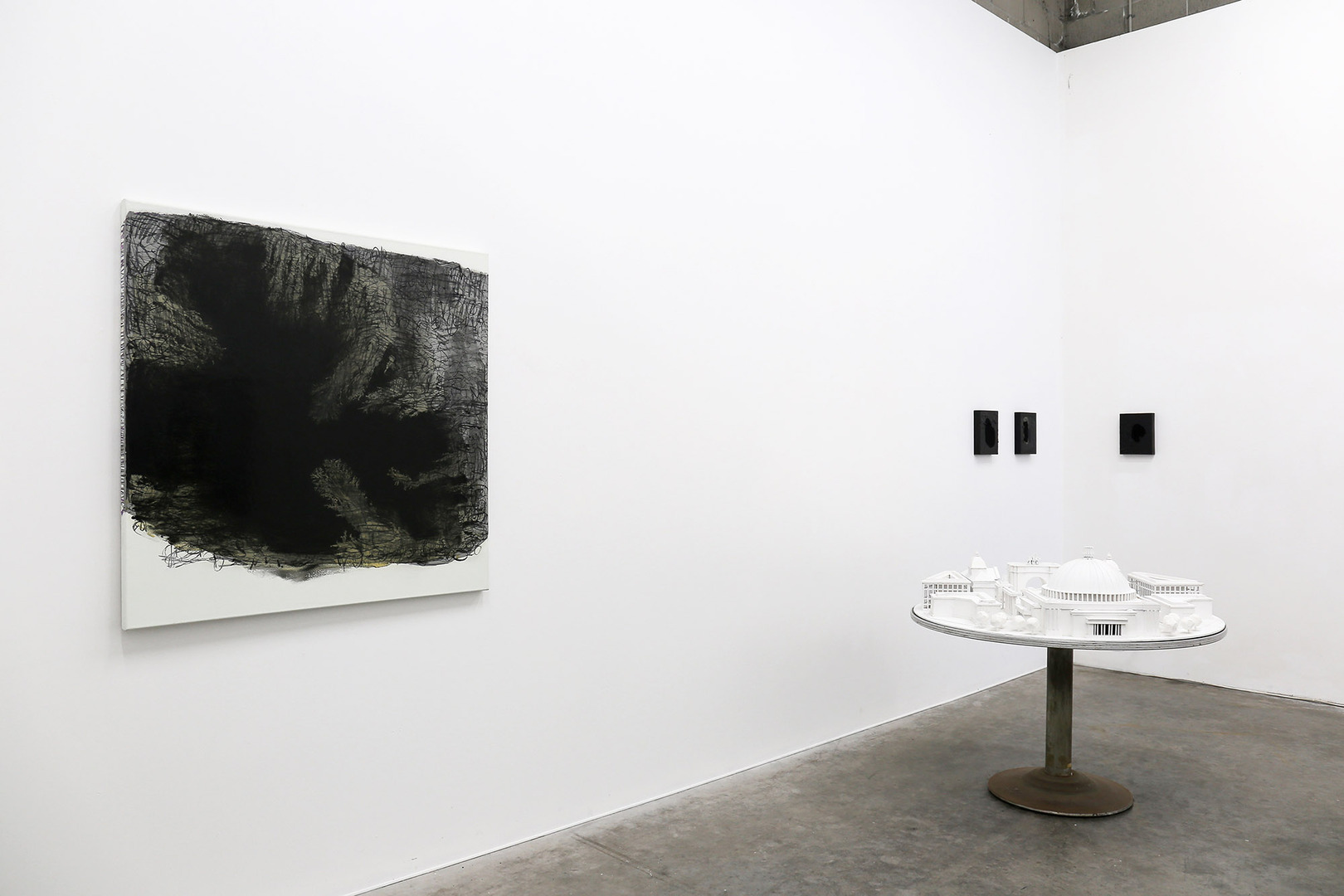
Installation view - back gallery
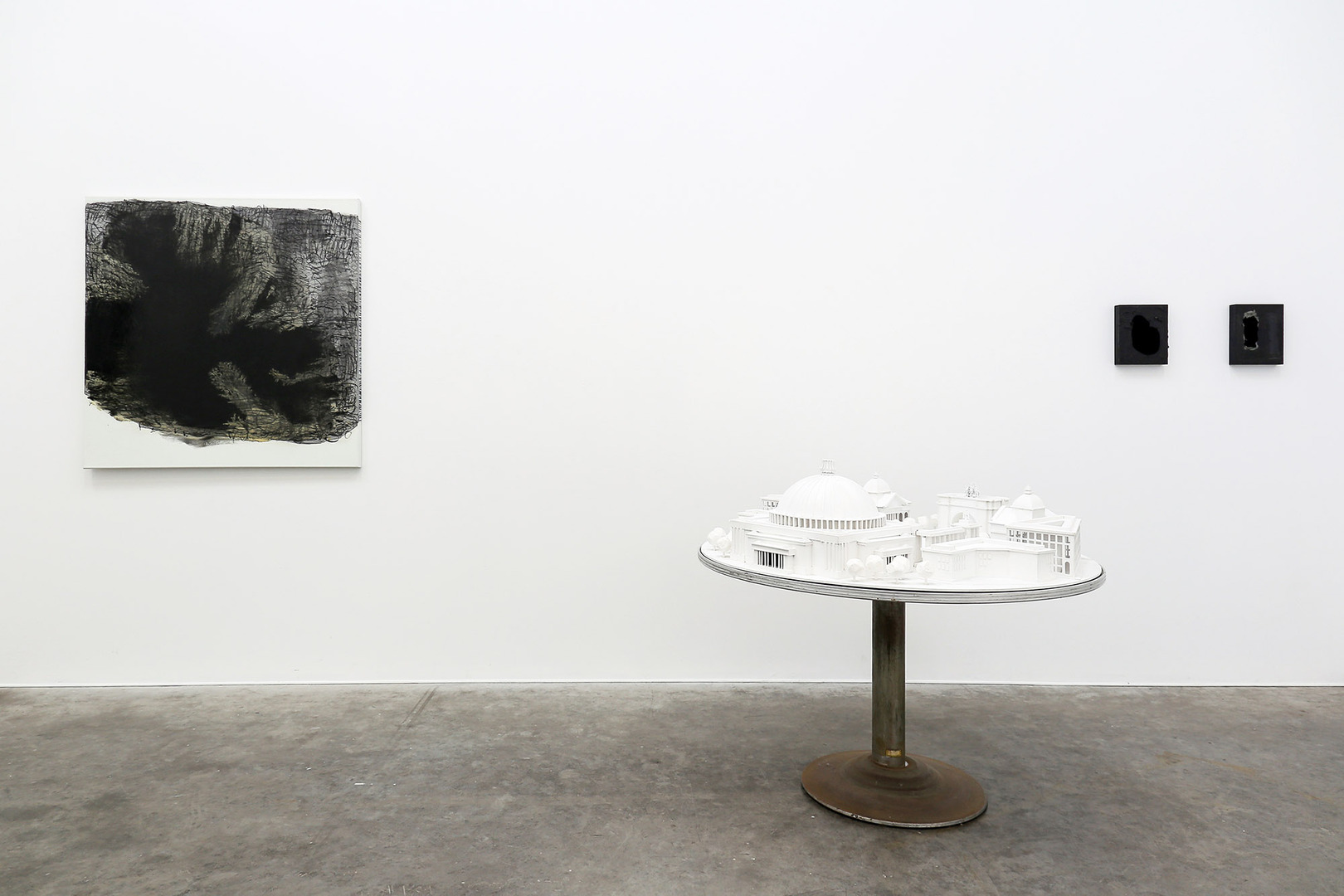
Installation view - back gallery
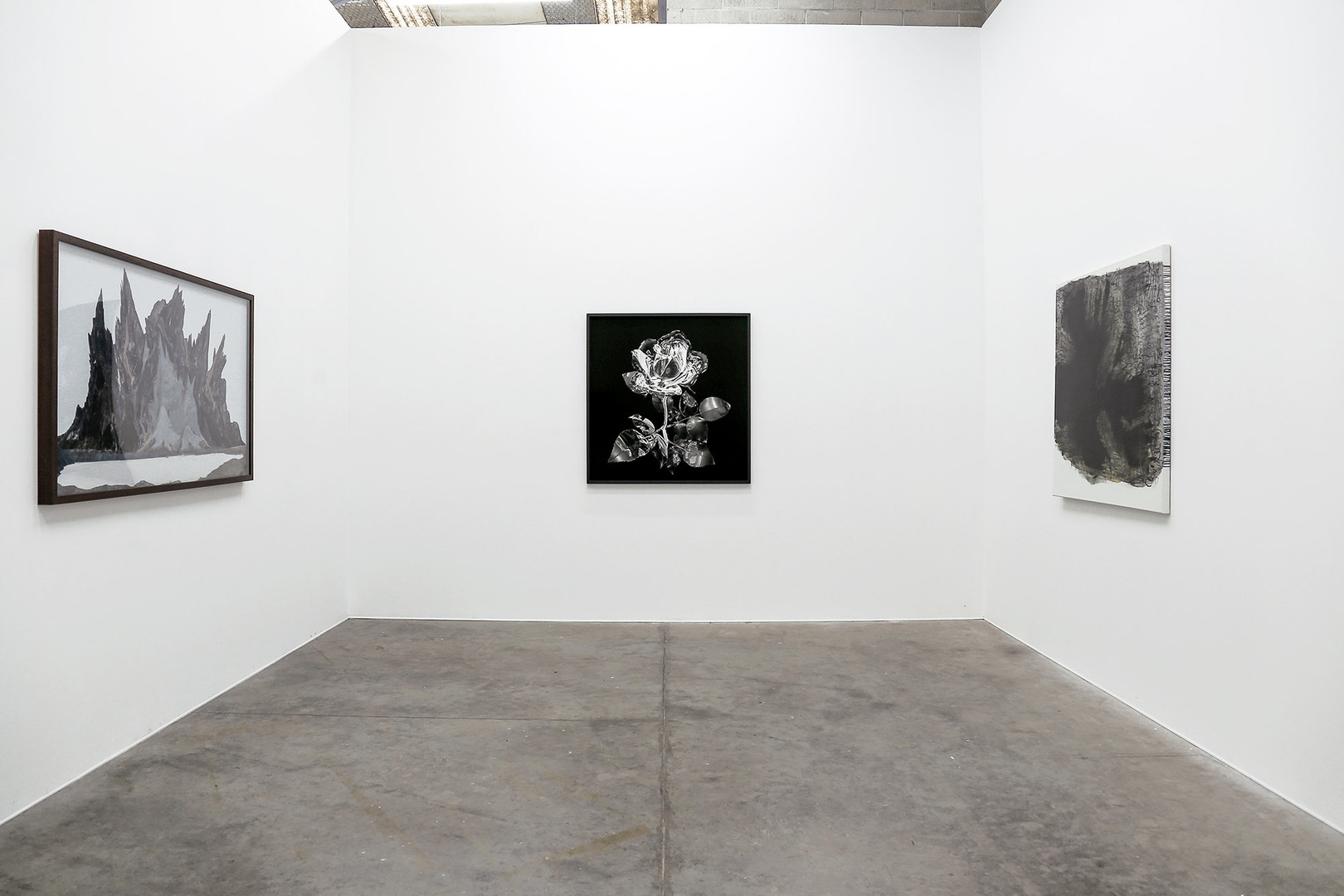
Installation view - back gallery
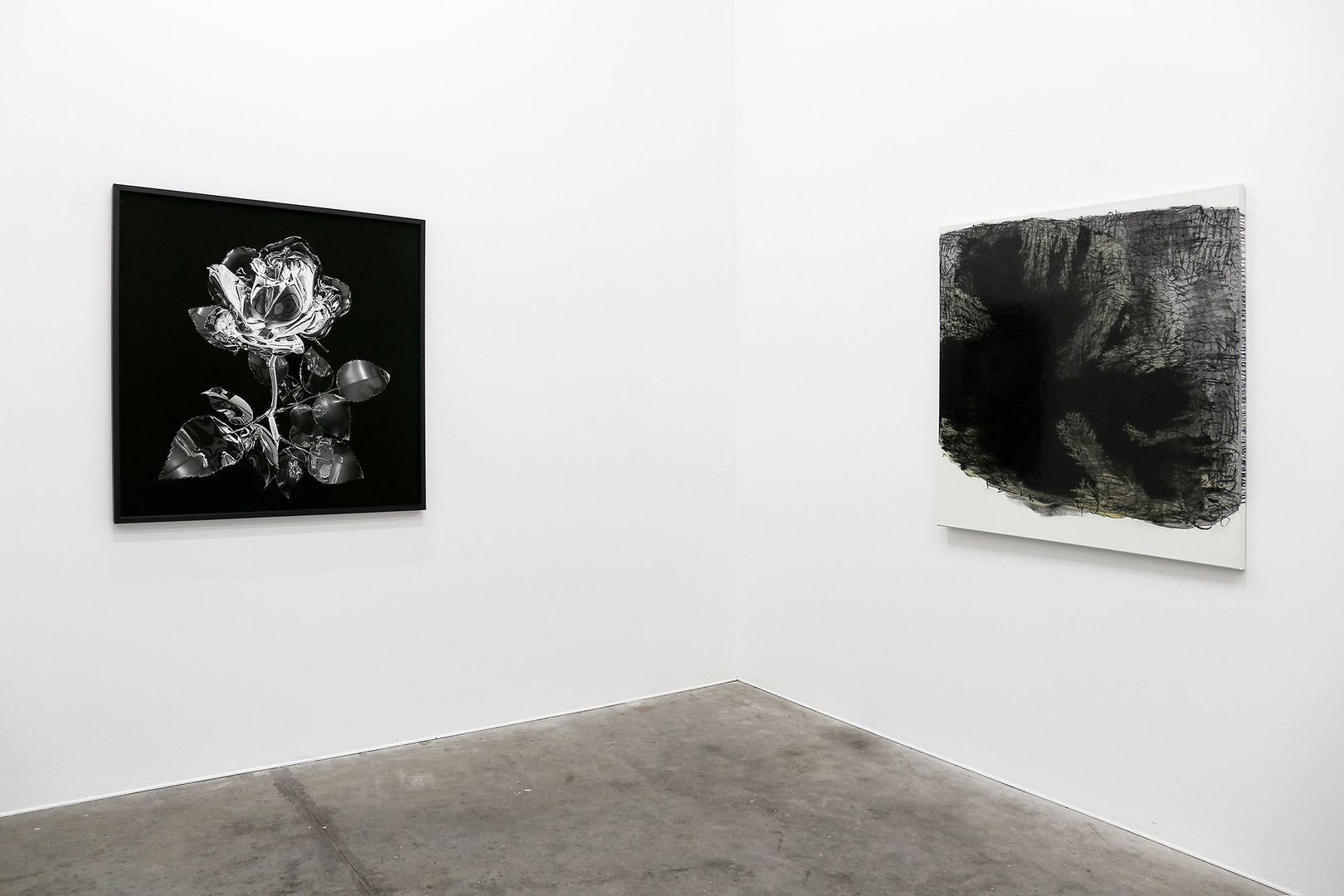
Installation view - back gallery
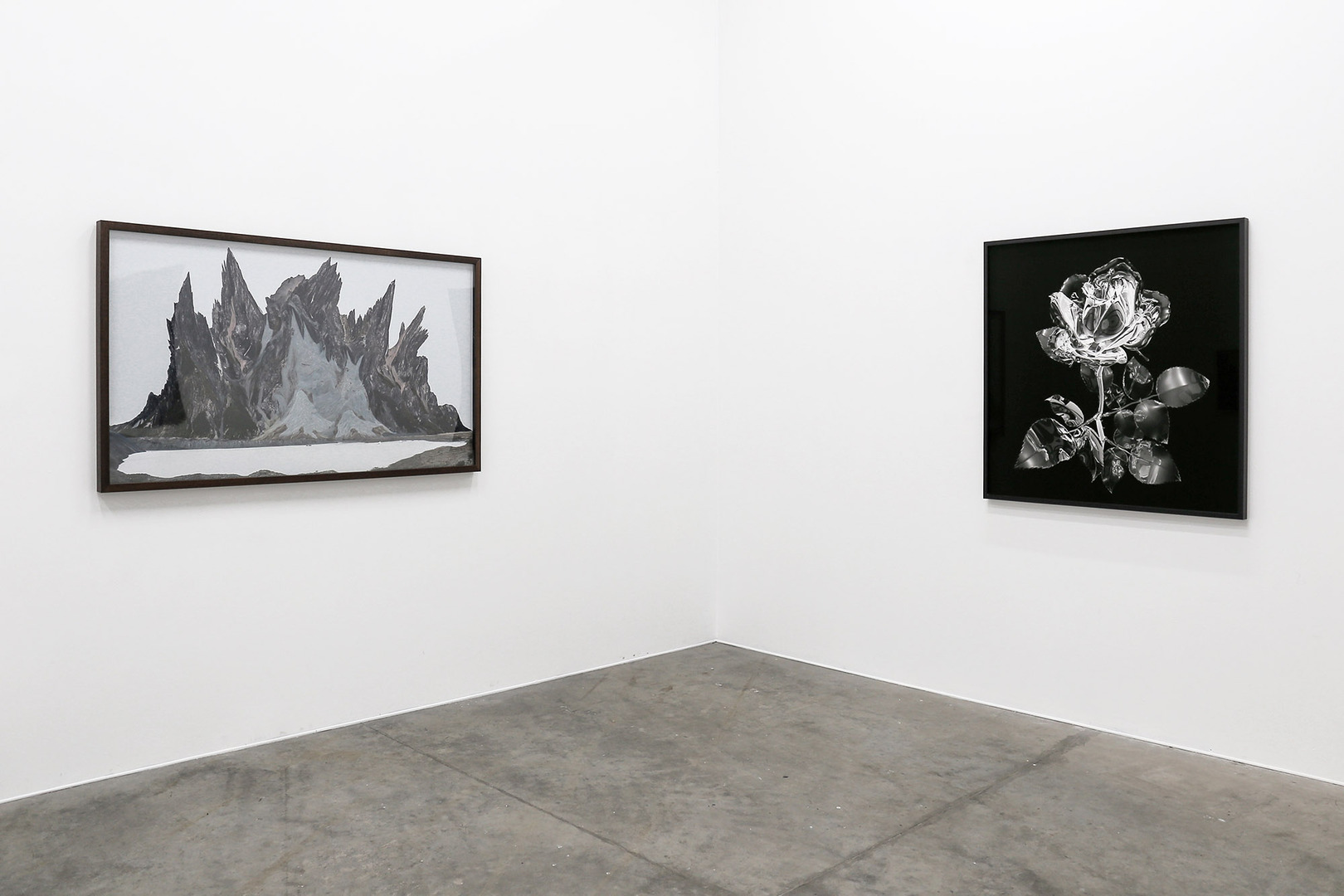
Installation view - back gallery
Jonathan Smart Gallery is delighted to present In Spite of Meaning, a group exhibition curated by Eugene Huston. The works selected showcase a diverse range of media, including video, 3D animation, photography, sculpture and painting. Featured artists include guests Hye Rim Lee and Jae Hoon Lee, alongside Rob Hood, Sanjay Theodore, Marie Le Lievre, Richard Reddaway, Steve Carr and Mark Braunias.
The 'Selected works' (below the curator's statement) includes images of video stills, photography, digital prints, sculptural works and painting. Titles and details of all the exhibited works can be found in the 'Details of works' section at the bottom of the web page.
Curator’s Statement
The notion of the "impossible meaningless of nature" invites a profound contemplation of the natural world and our attempts to ascribe meaning to it. At first glance, nature appears to be a tapestry of intricate ecosystems, vibrant life forms, and breathtaking landscapes, each teeming with complexity and beauty. Yet, beneath this surface lies an inherent indifference; nature operates according to its own laws, unencumbered by human notions of purpose or significance. The cyclical patterns of life and death, growth and decay, unfold with an almost engineered precision, suggesting a realm where meaning is not a guiding principle, but rather a human construct imposed on the chaotic reality of existence.
This paradox presents a unique philosophical dilemma. While humans strive to find meaning in natural phenomena—be it through spirituality, science, or art—nature itself remains devoid of intention. The serene beauty of a sunset or the violent ferocity of a lightning storm at sea occurs without regard for human interpretation. This realization can evoke a sense of existential angst, as individuals grapple with the understanding that their search for meaning may be inherently futile. Yet, this very futility can also be liberating. It allows for a perspective that embraces the wonder of existence without the weight of imposed significance. In recognizing the "impossible meaningless" of nature, we may find ourselves more attuned to the raw beauty of the world around us, appreciating it for what it is rather than what we wish it to signify.
At its core, "the impossible meaninglessness of nature" encapsulates a profound and often uncomfortable exploration of existence. It challenges us to confront the tension between our desire for meaning and the reality of nature's indifference, ultimately inviting a deeper reflection on our place within the universe.
Eugene Huston
Hye Rim Lee
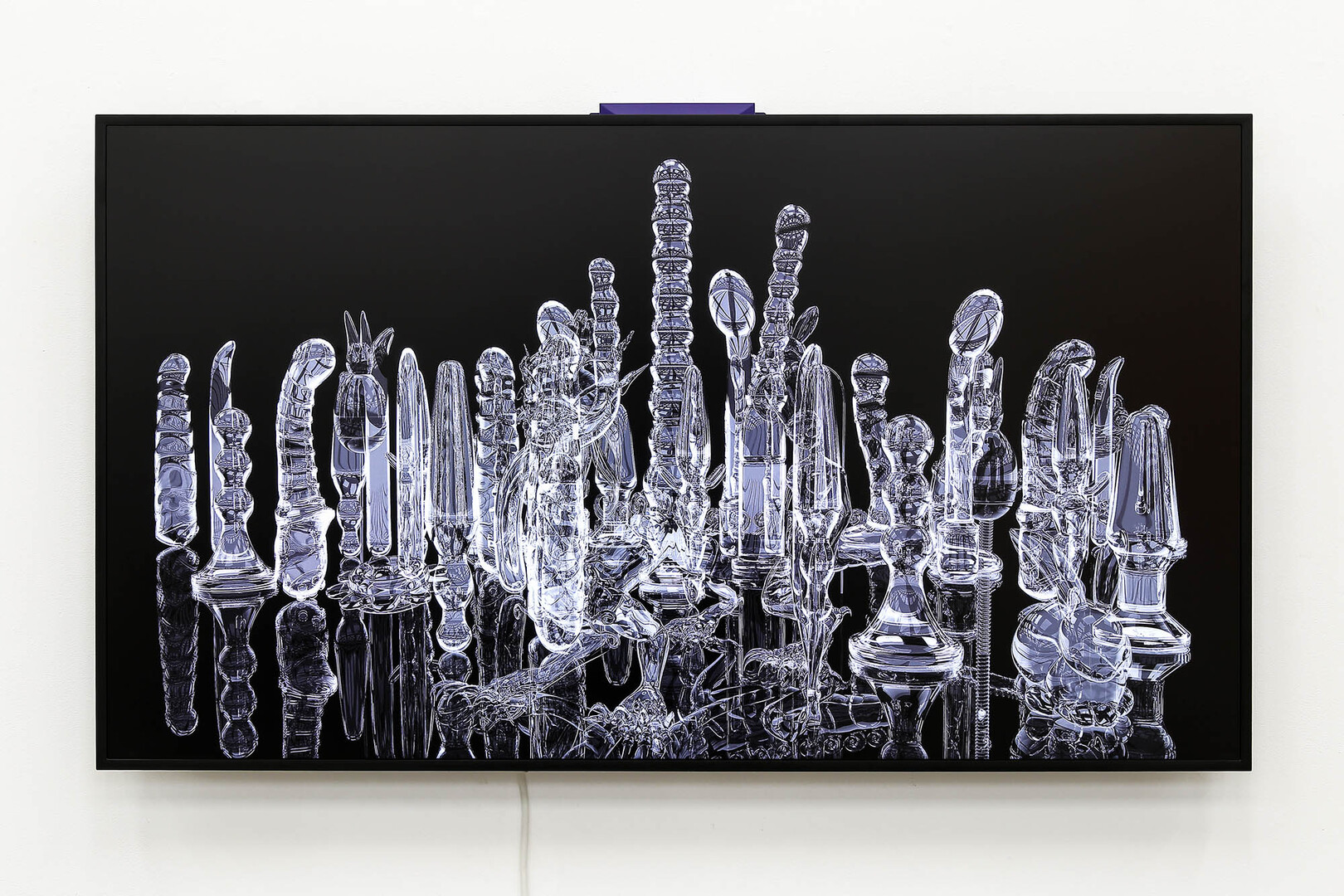
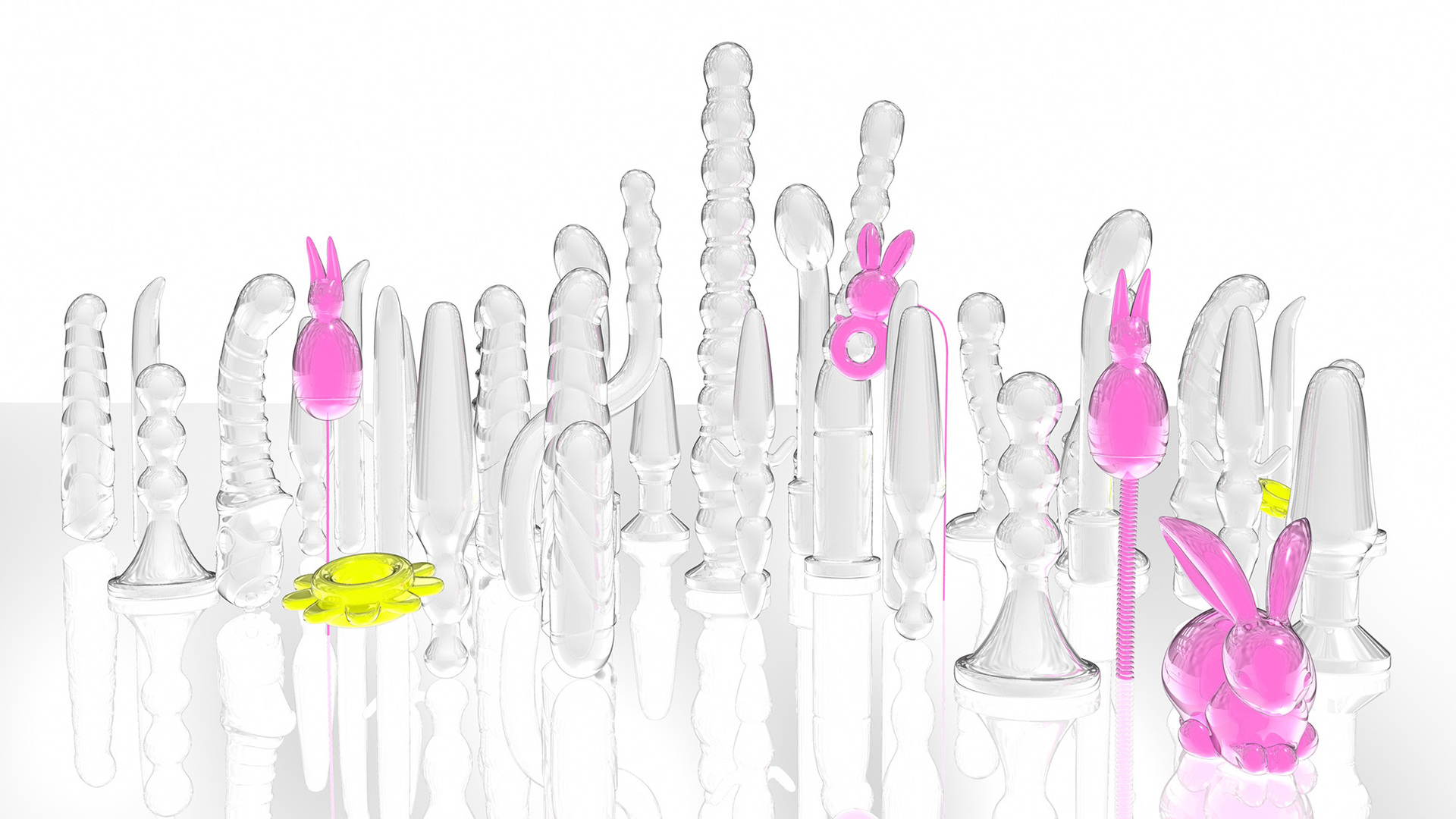
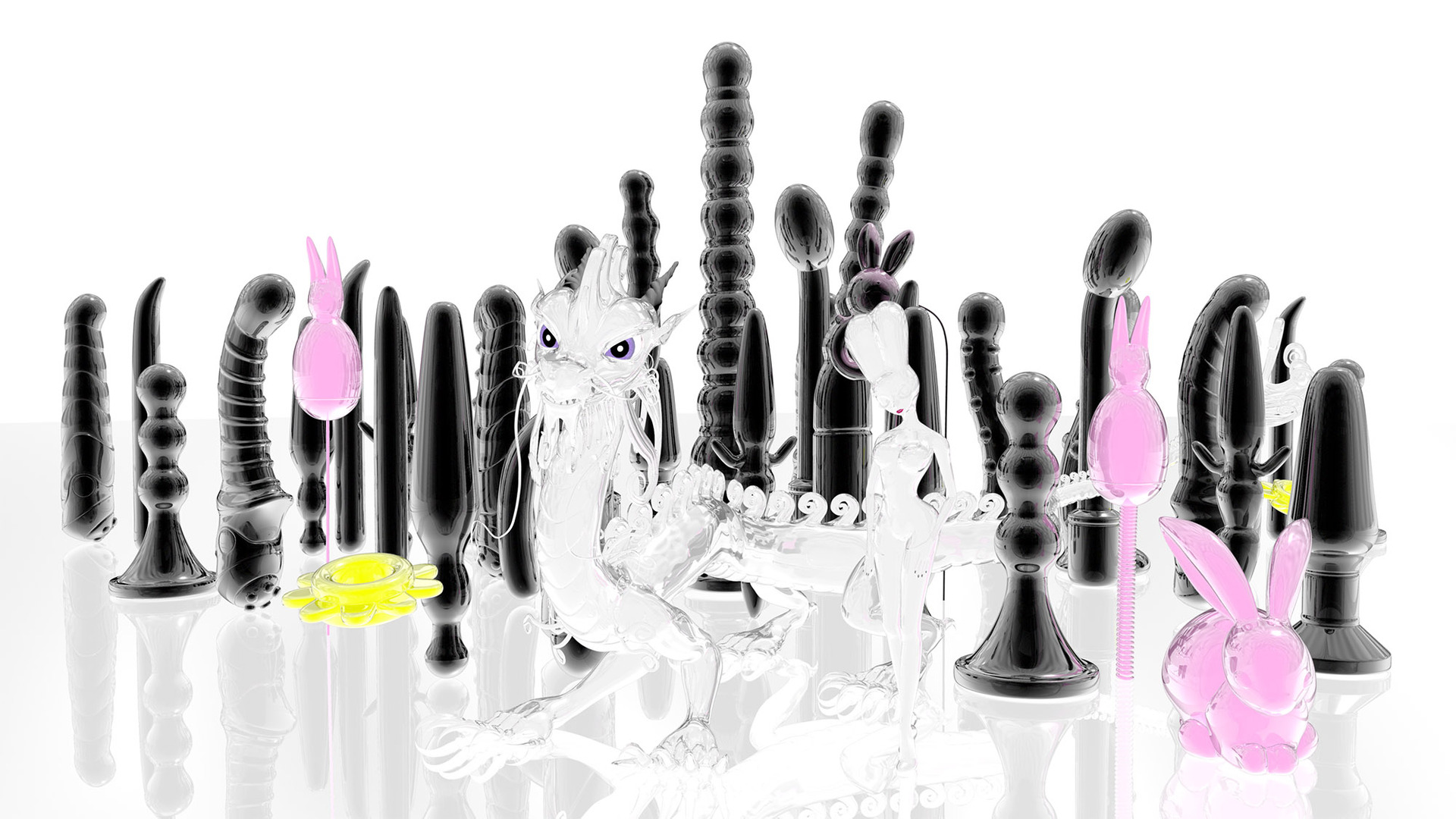
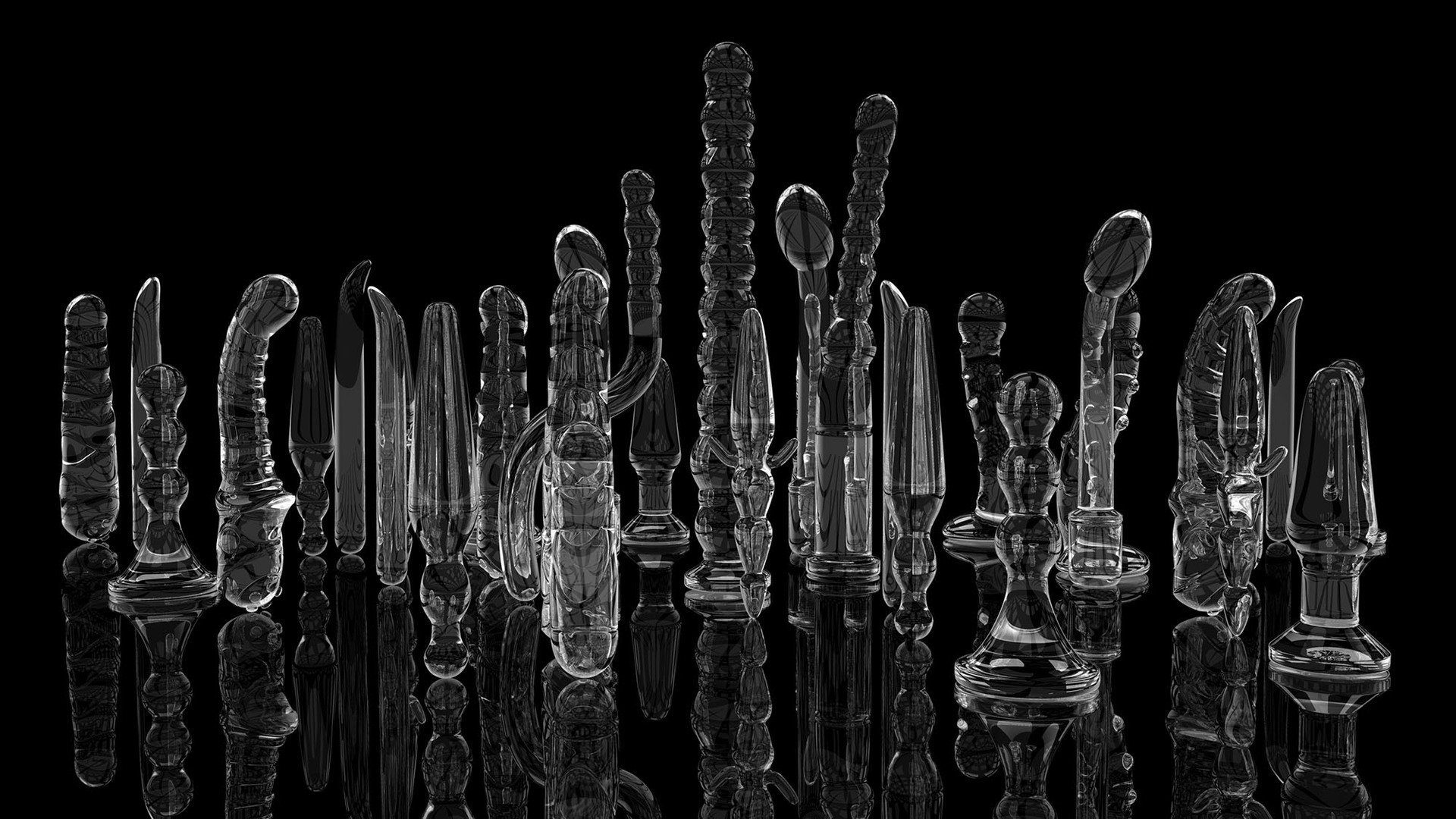
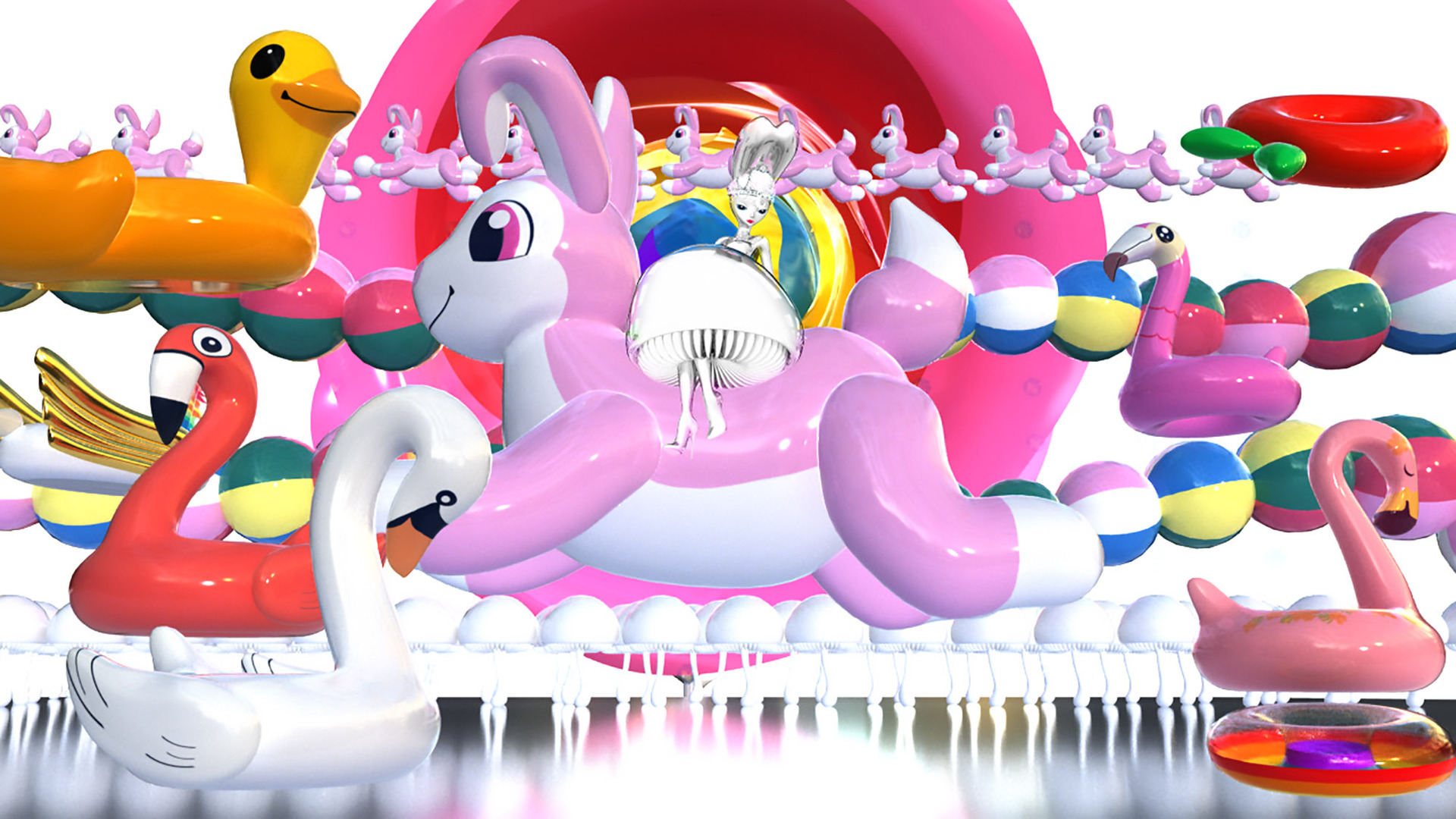
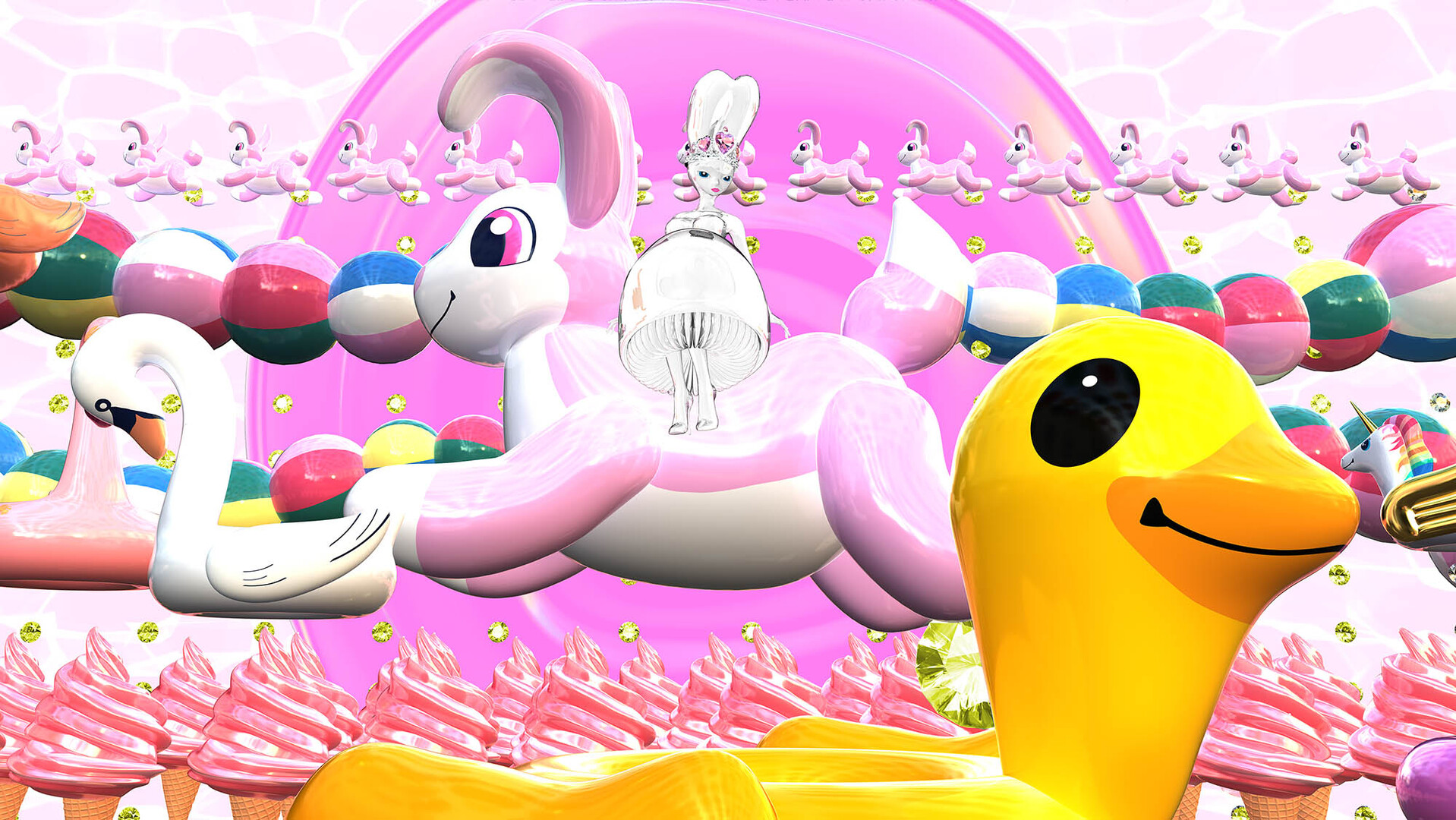
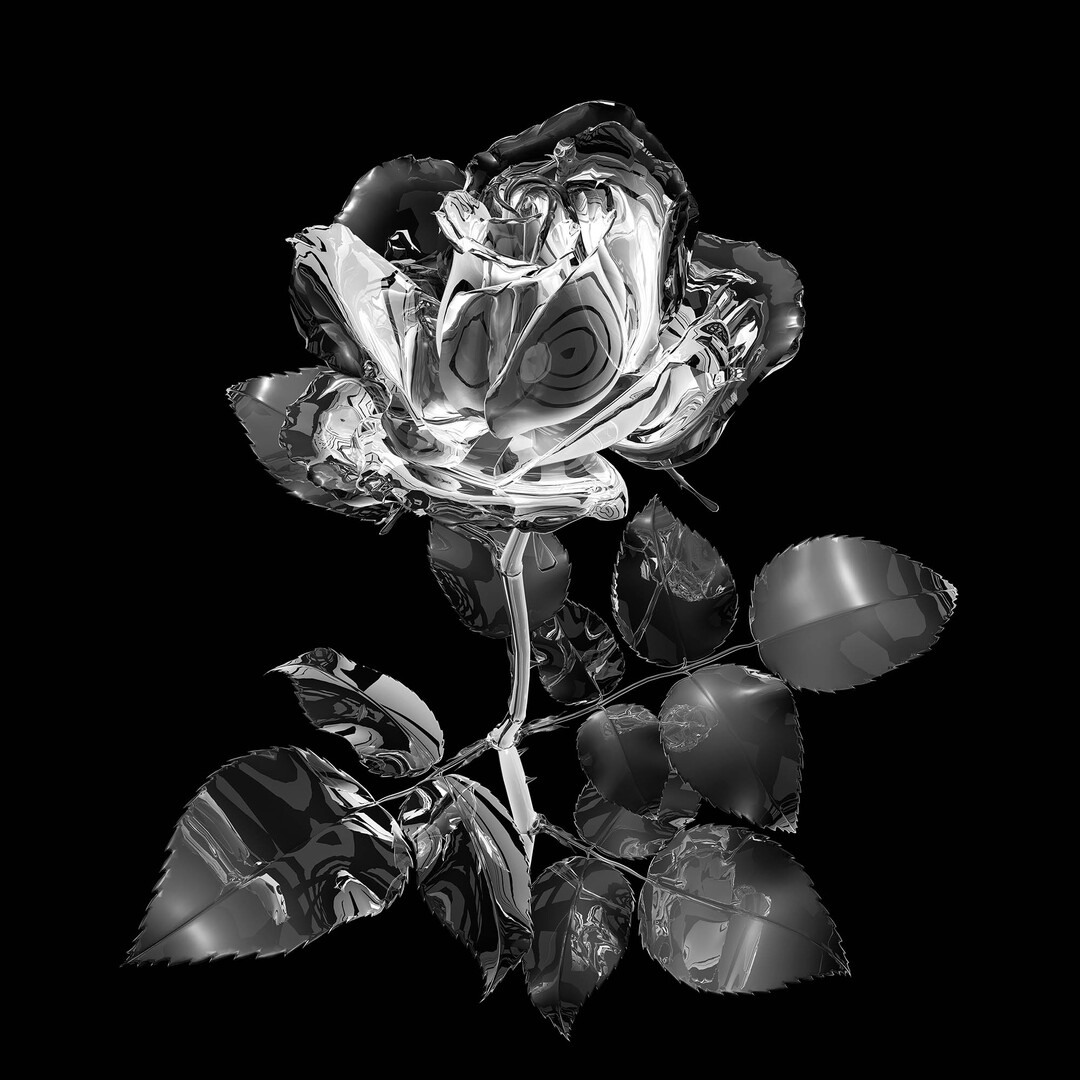
Marie Le Lievre
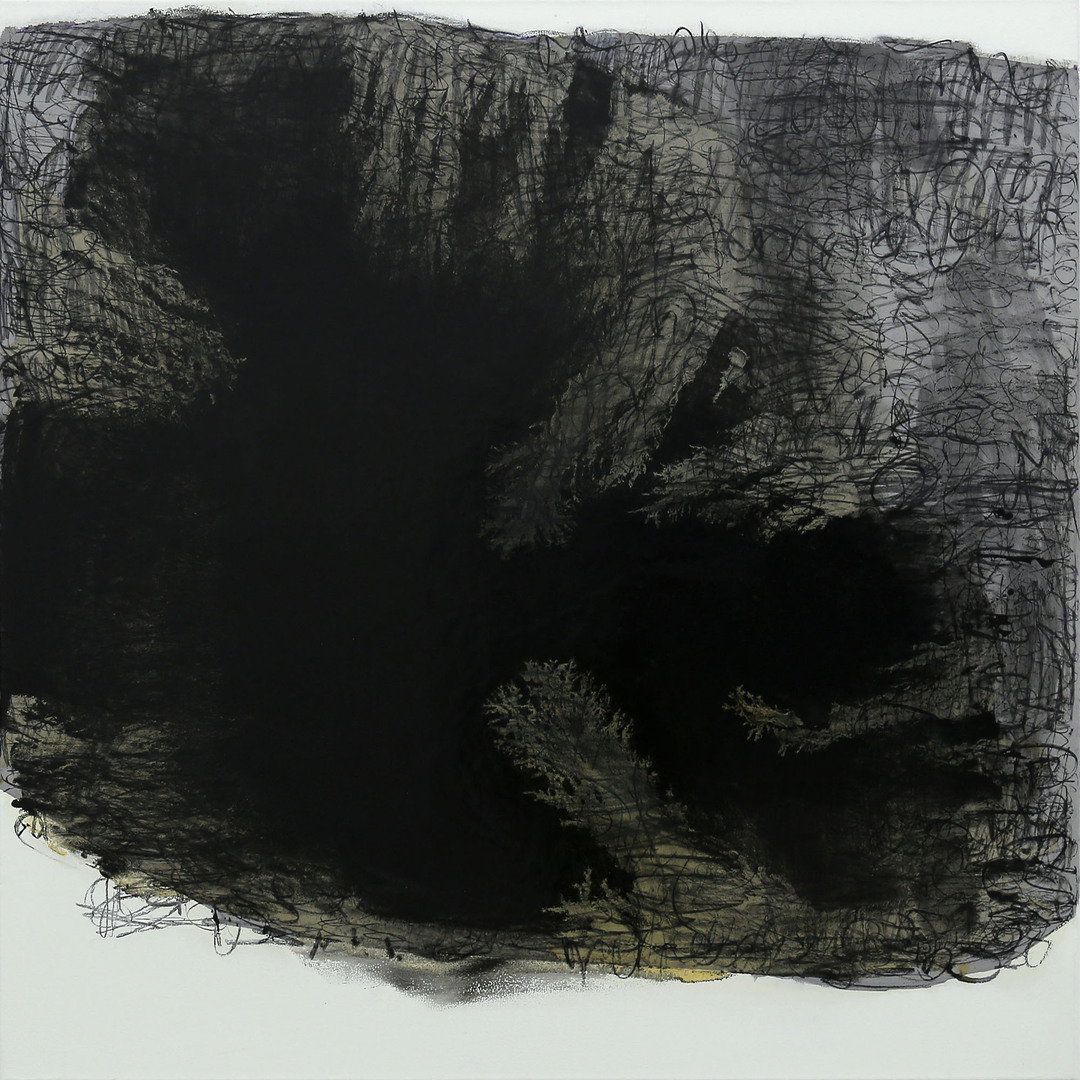
Steve Carr
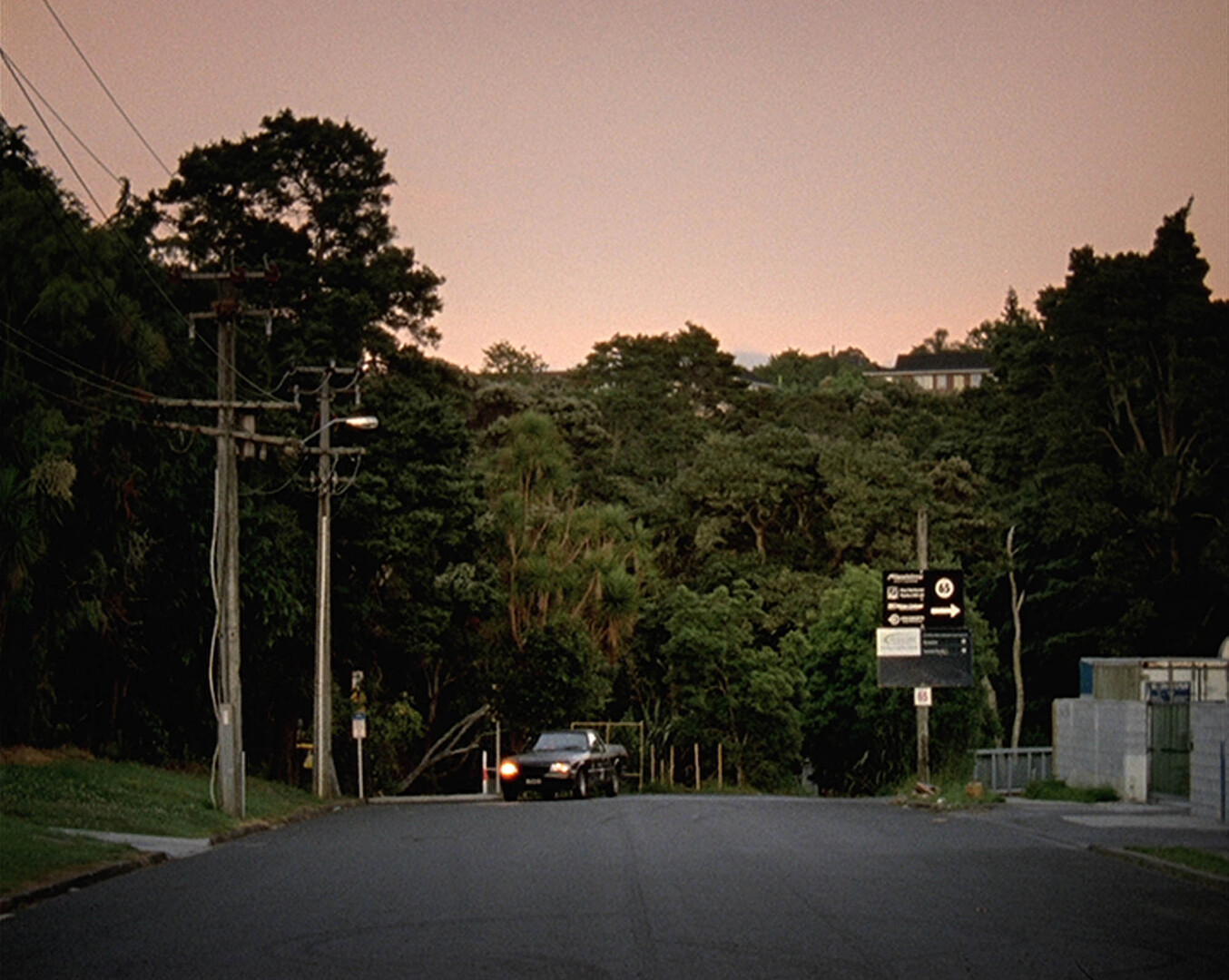
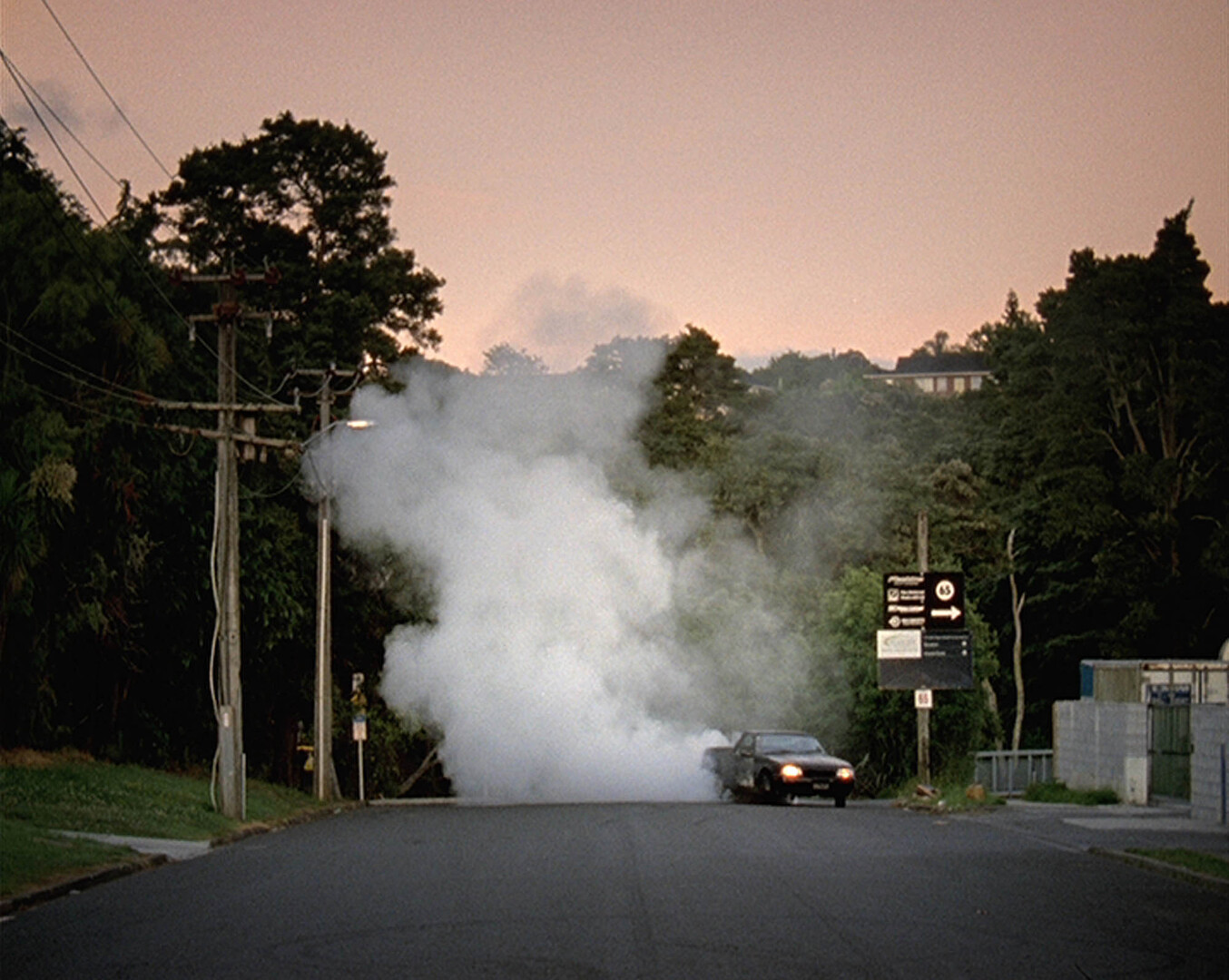
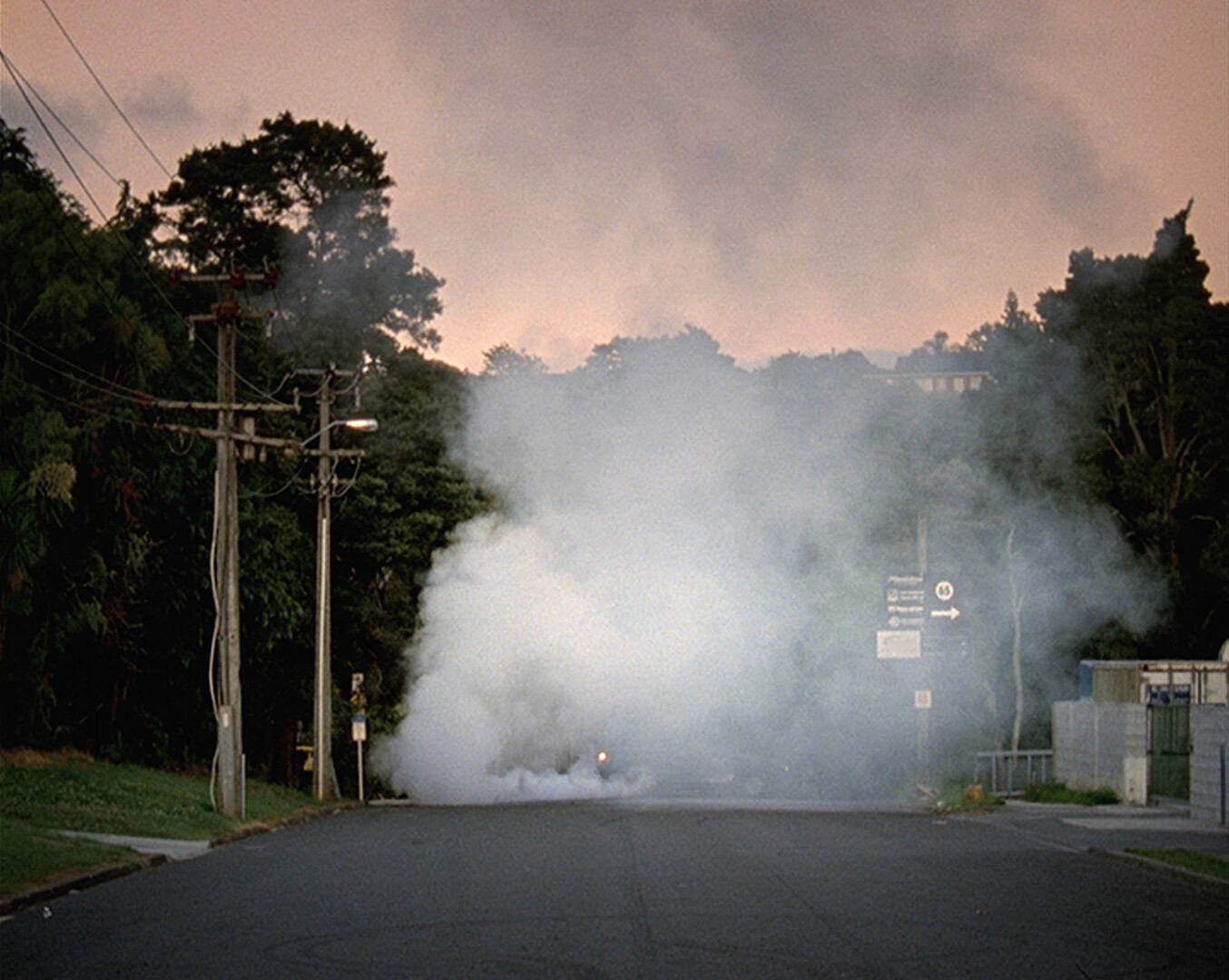
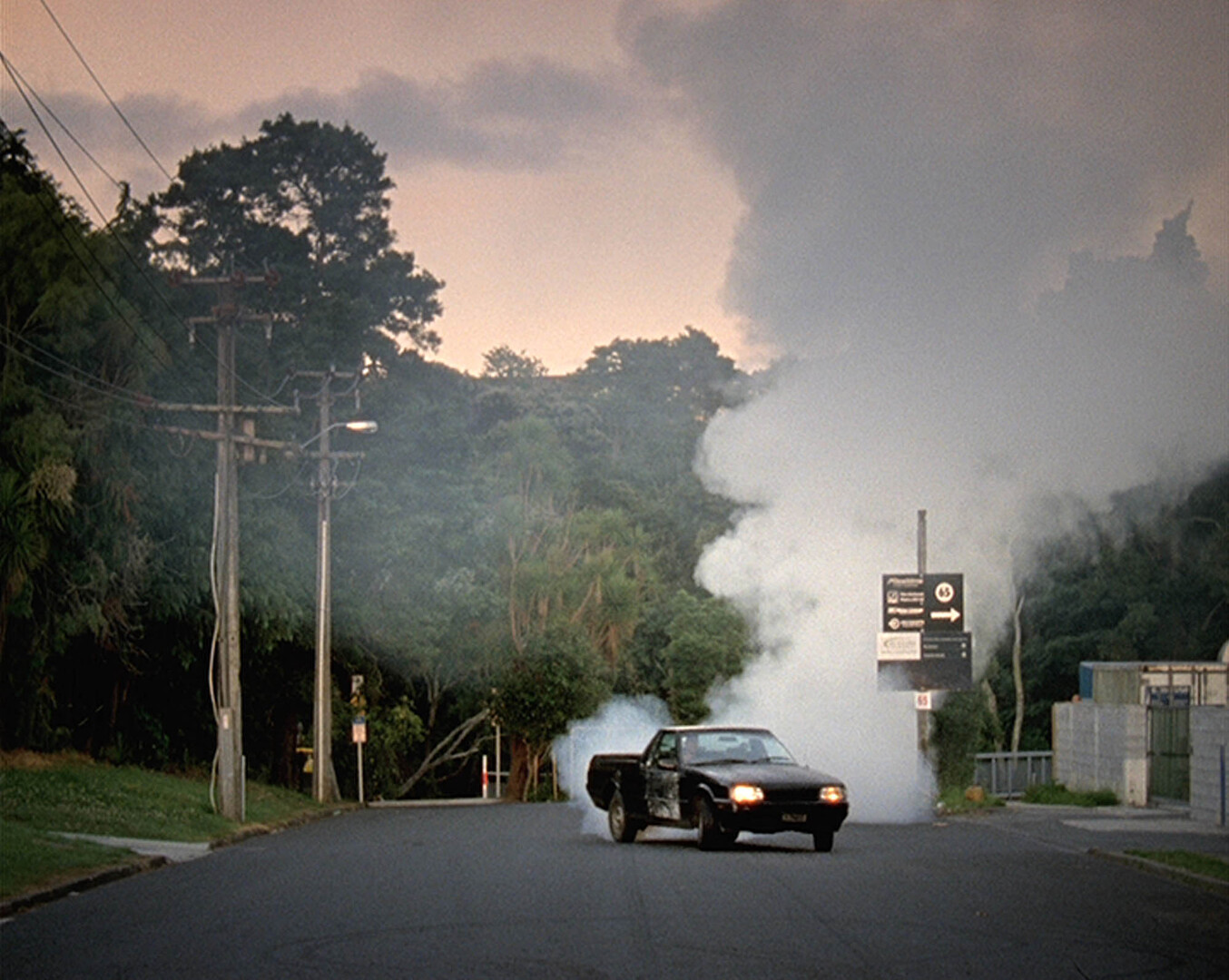
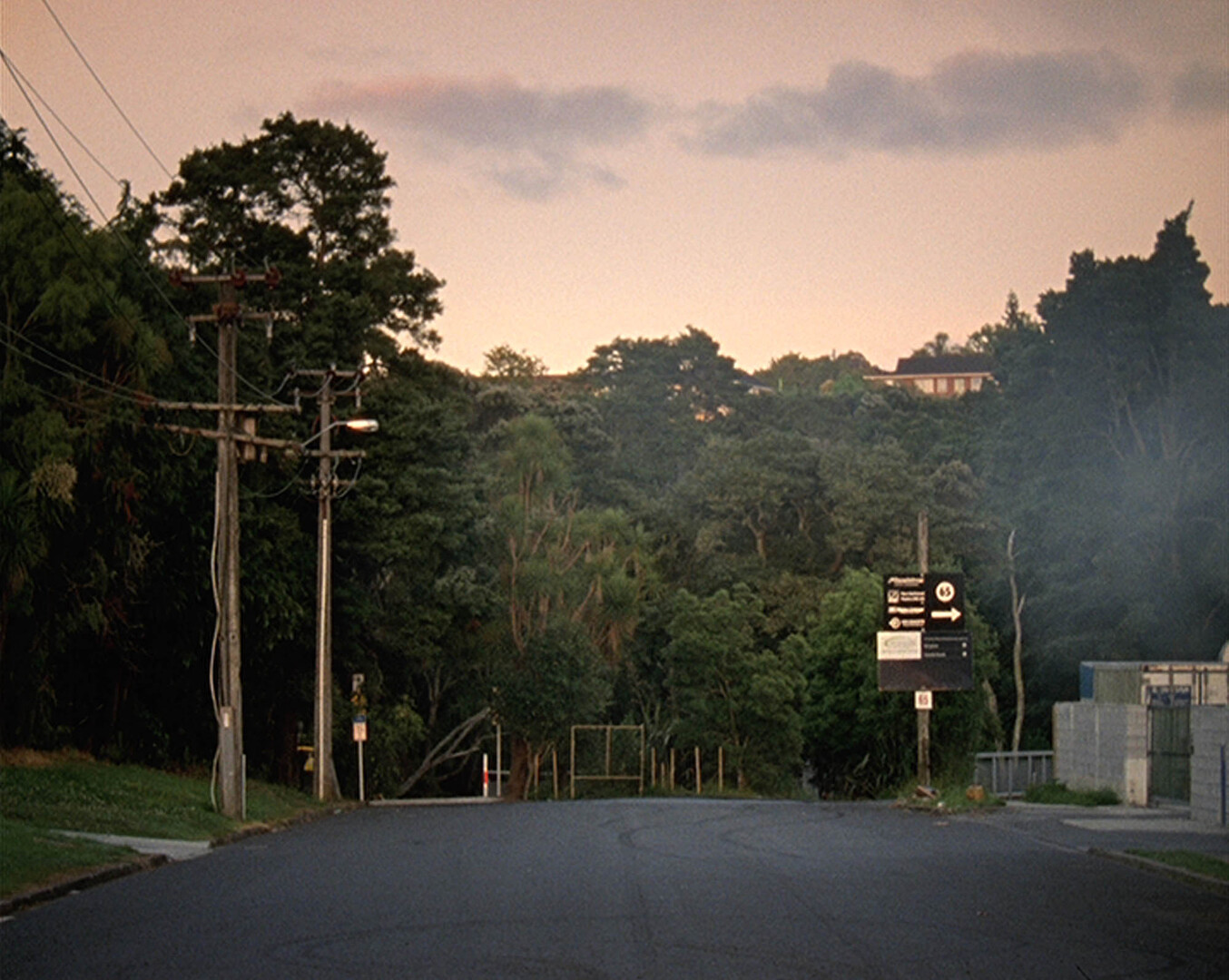
Jae Hoon Lee
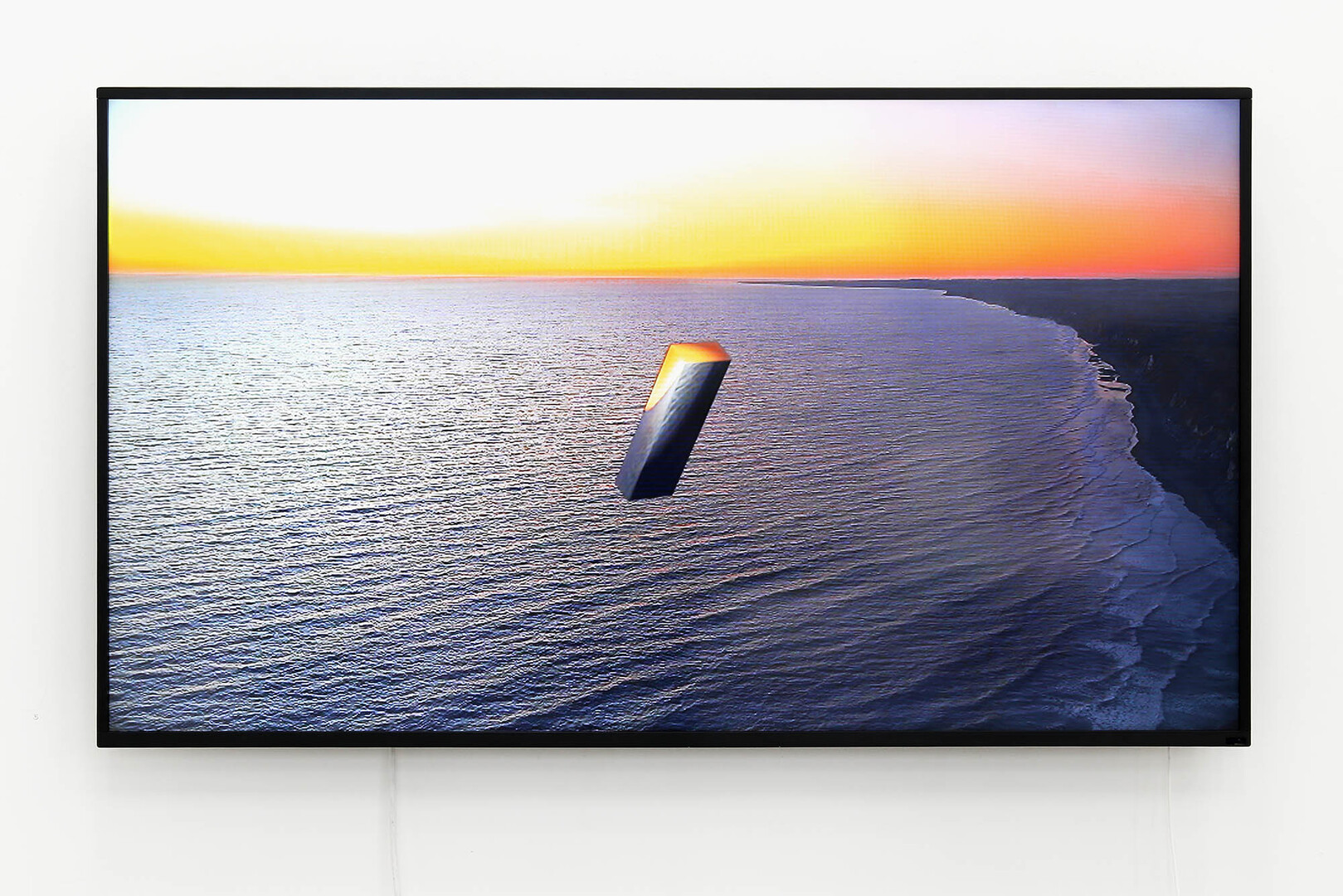
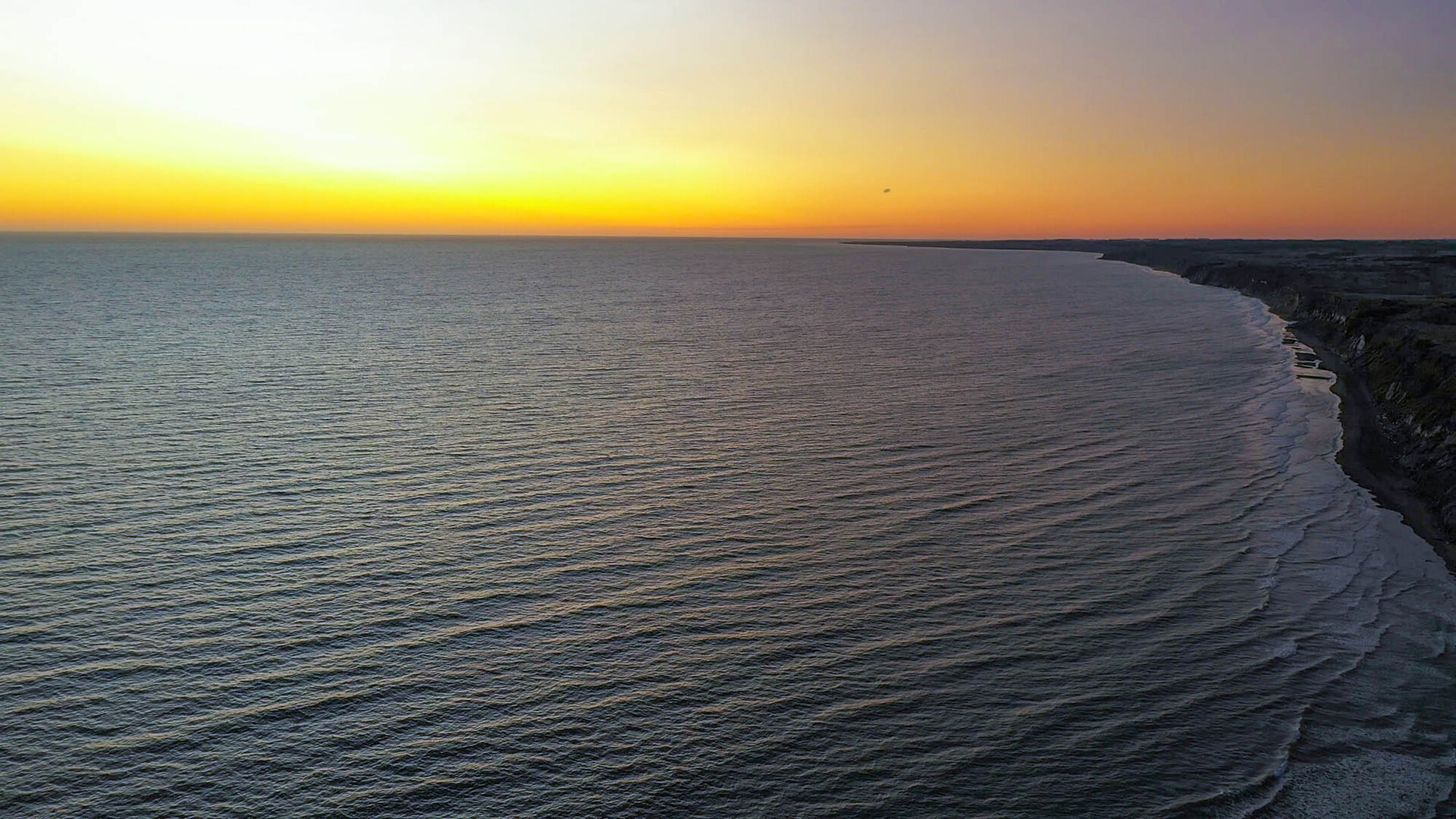
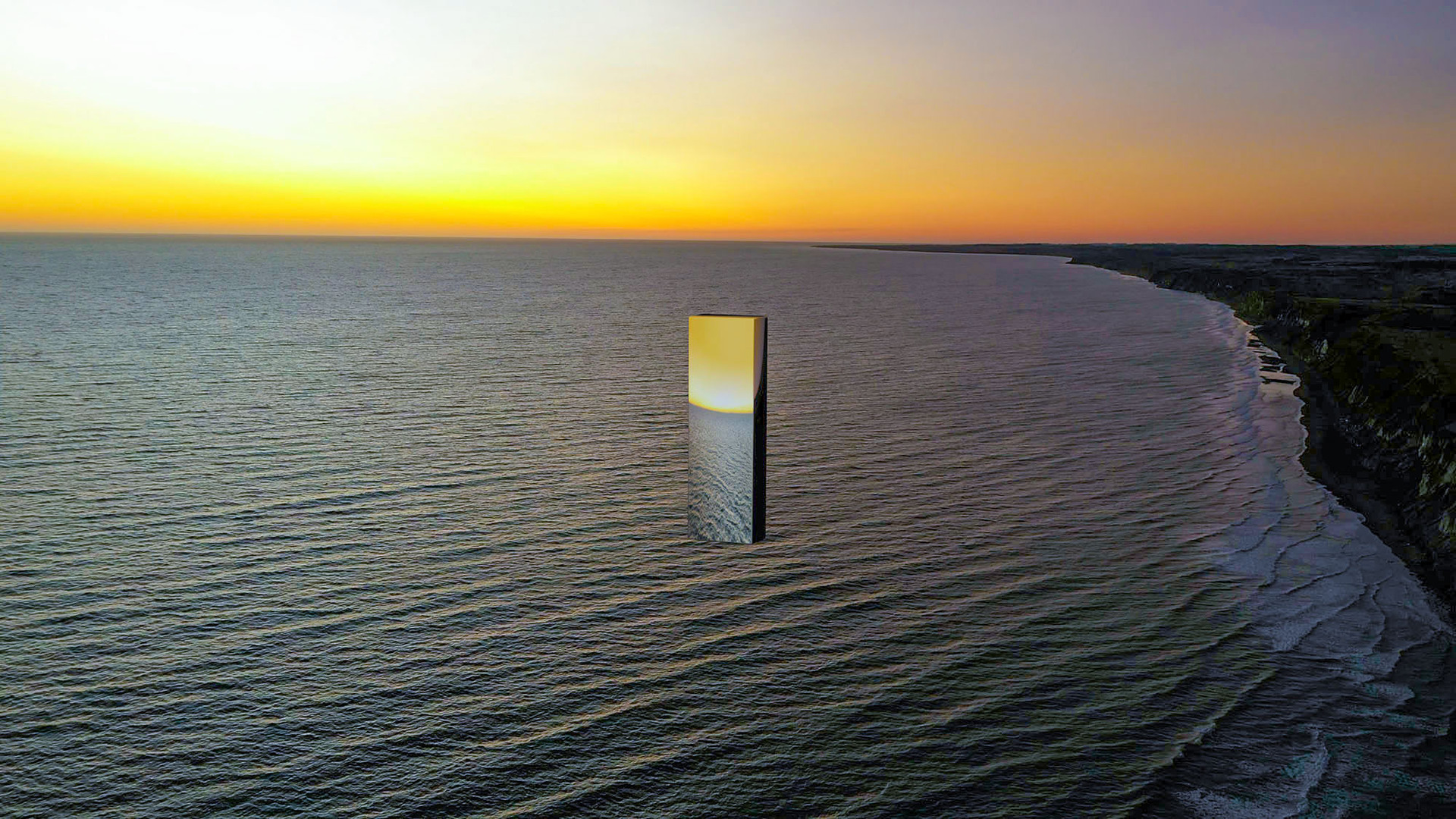
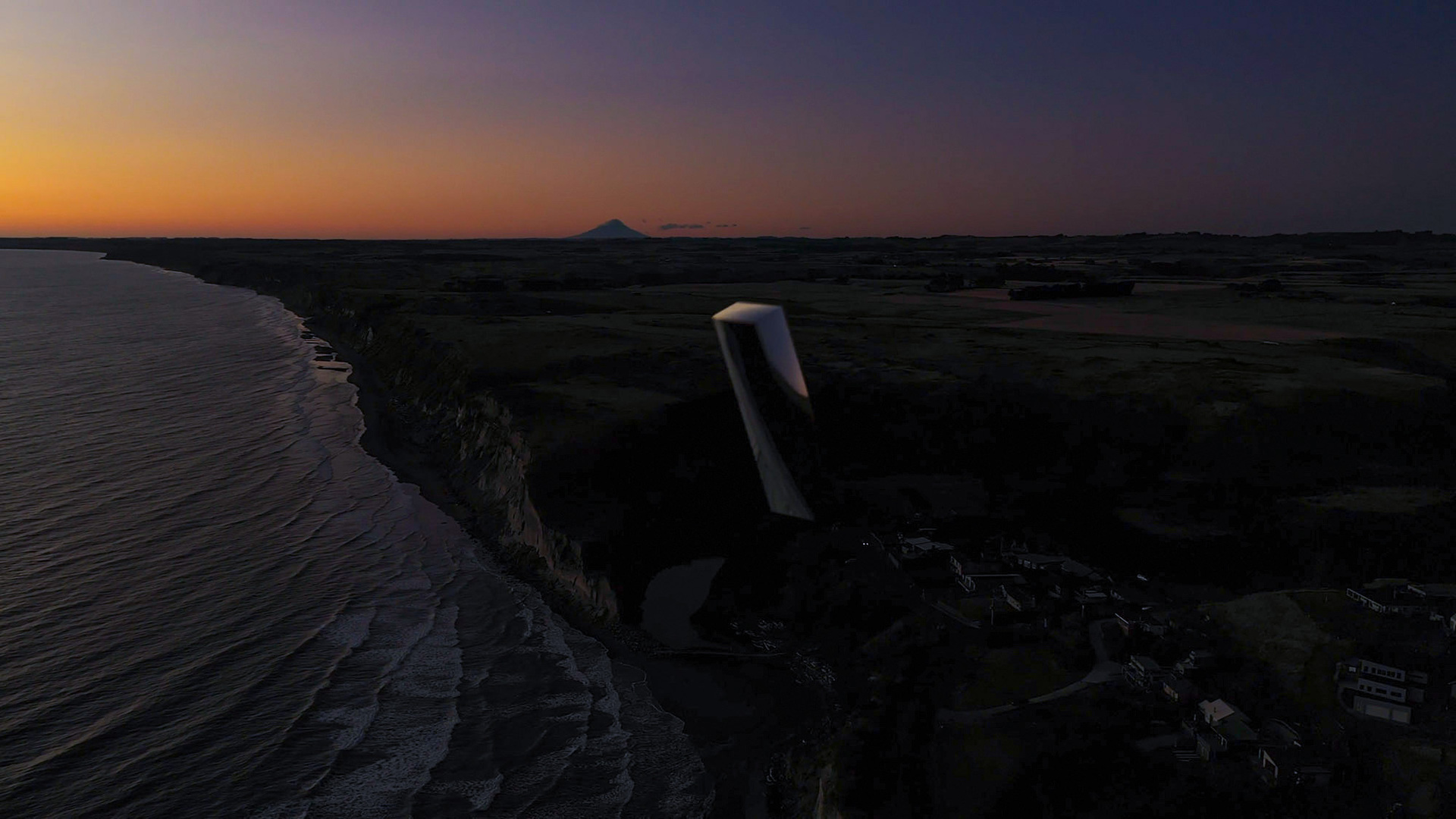
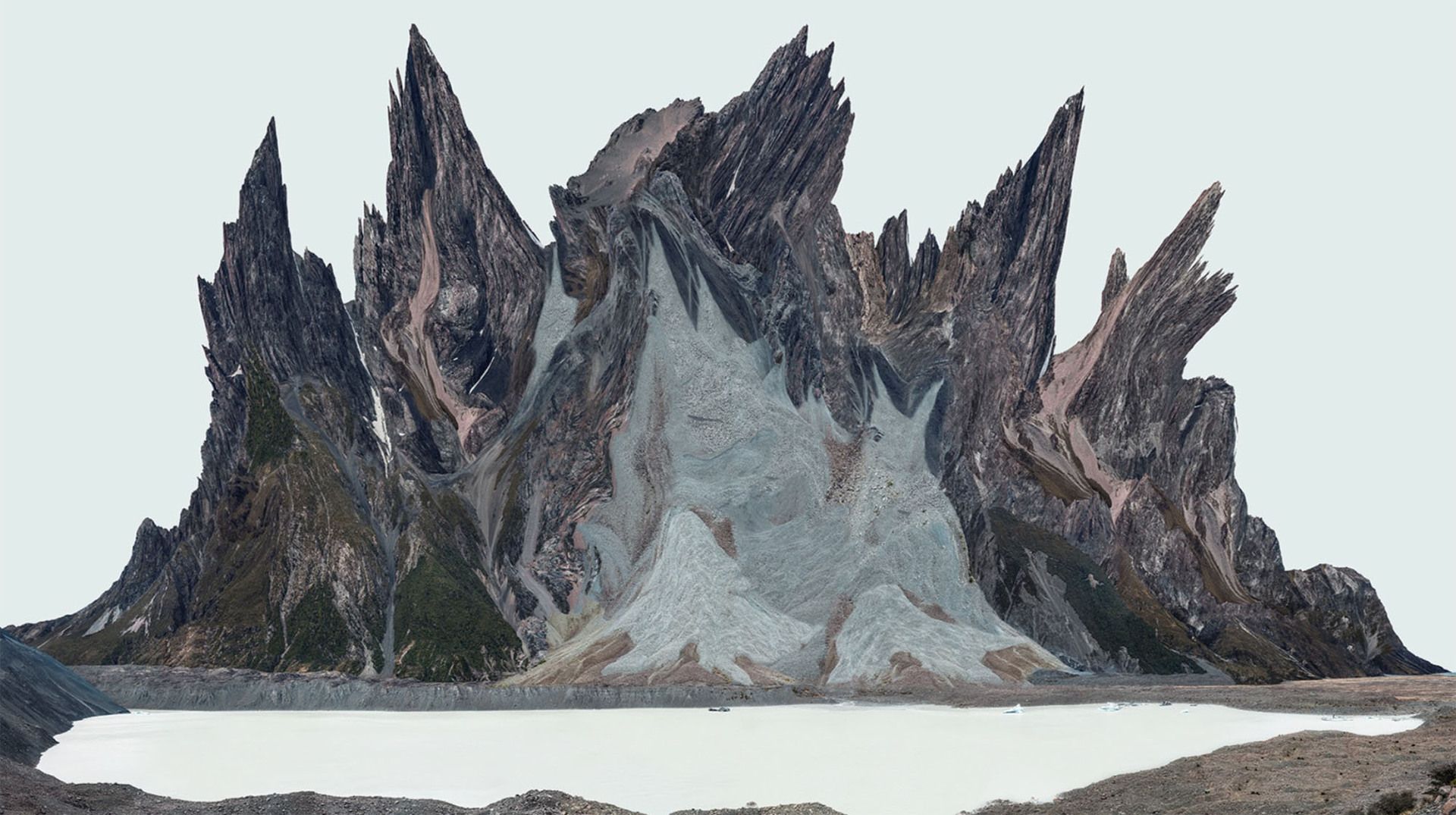
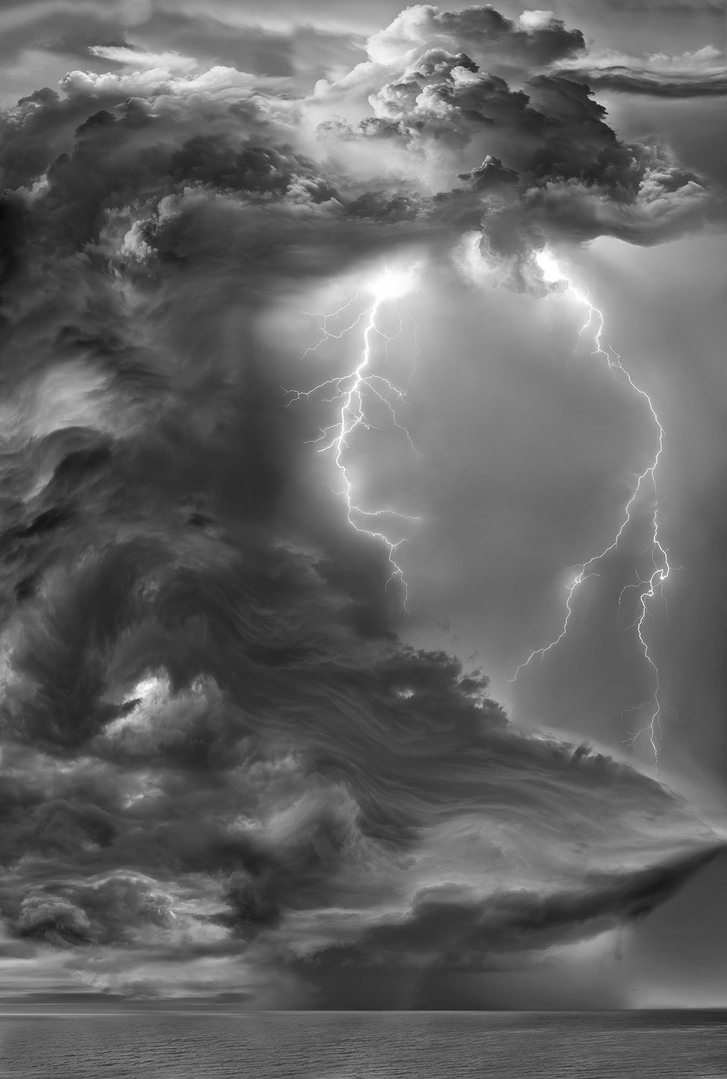 |
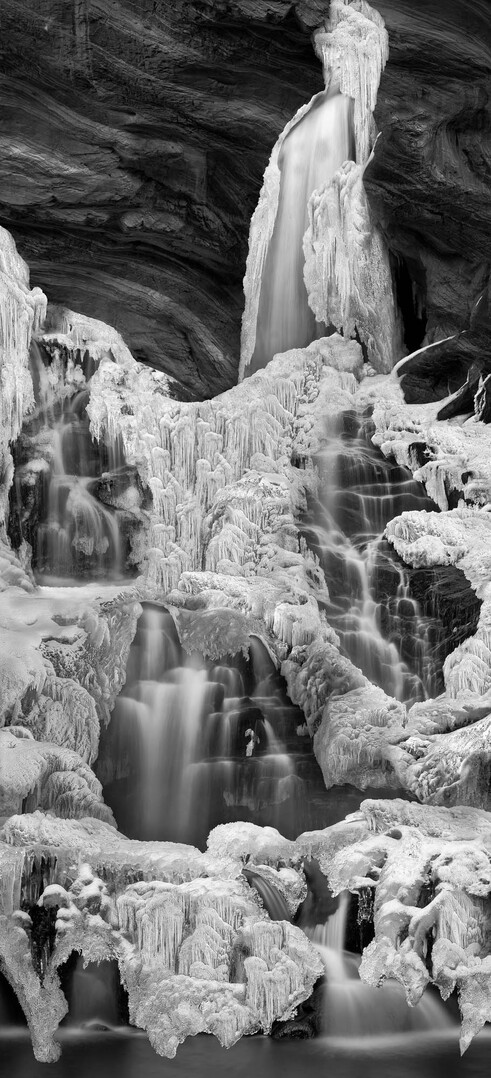 |
Richard Reddaway
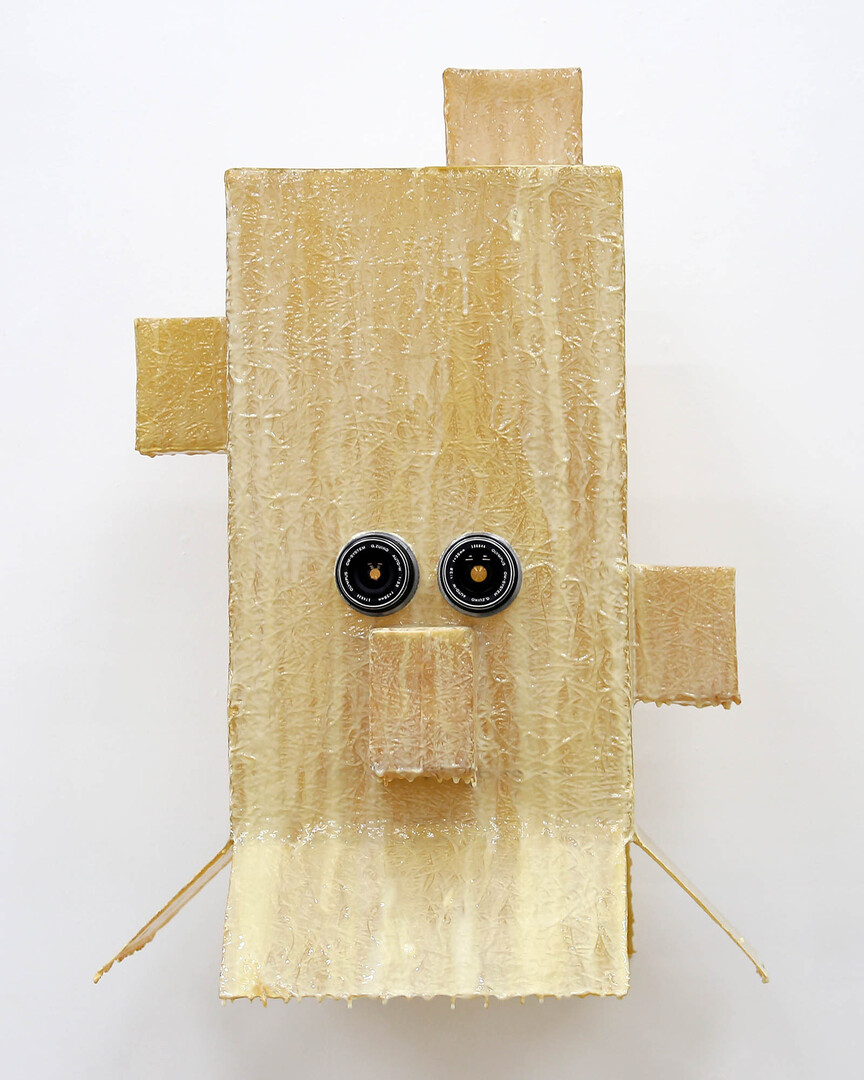 |
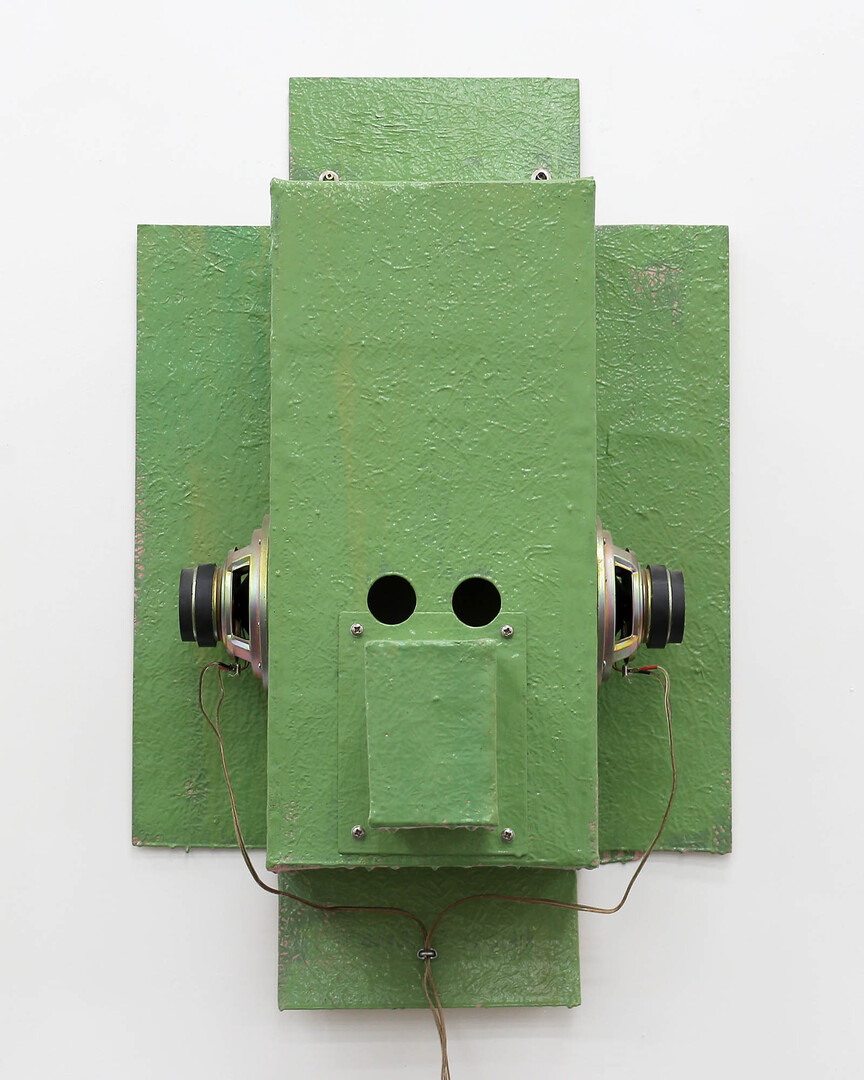 |
Rob Hood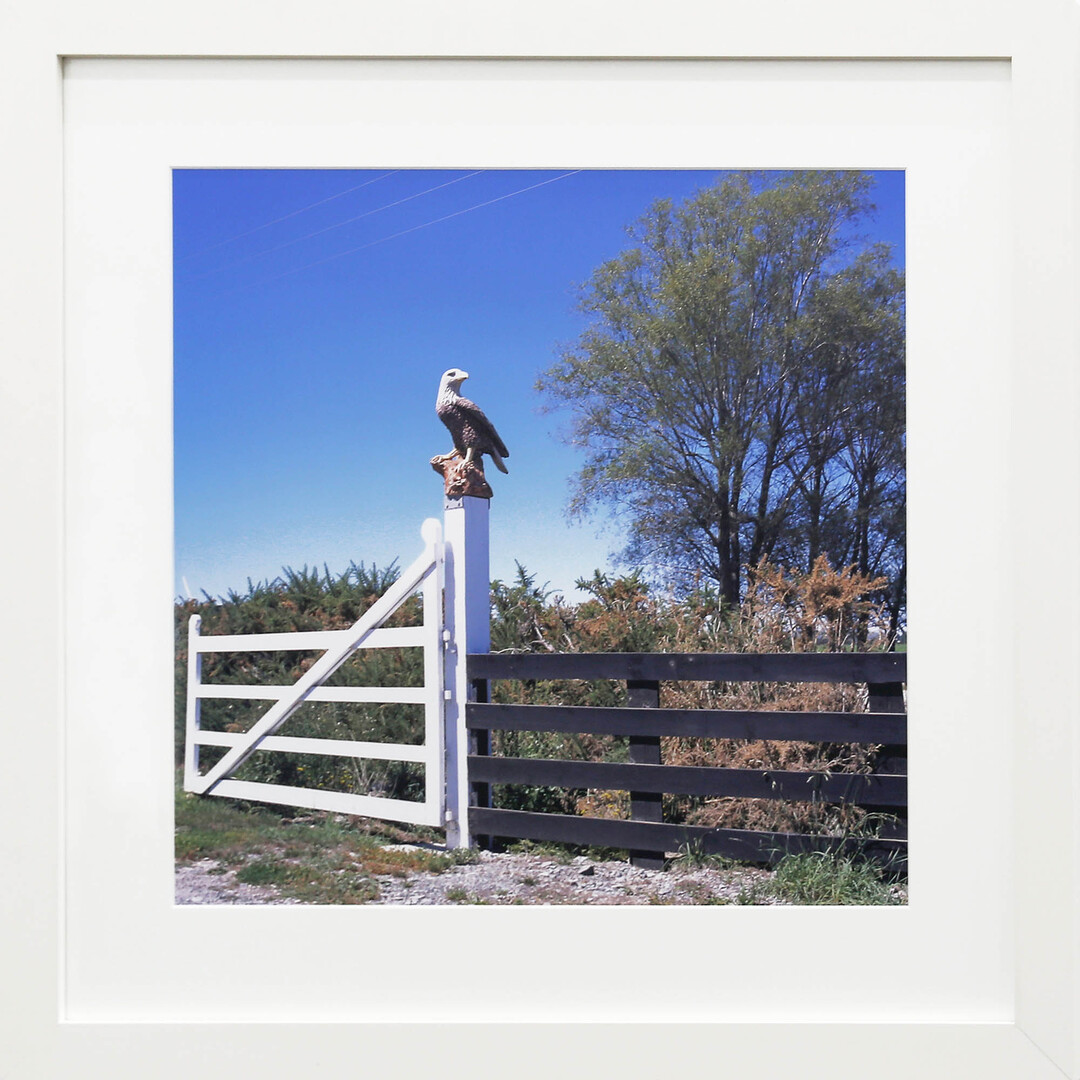
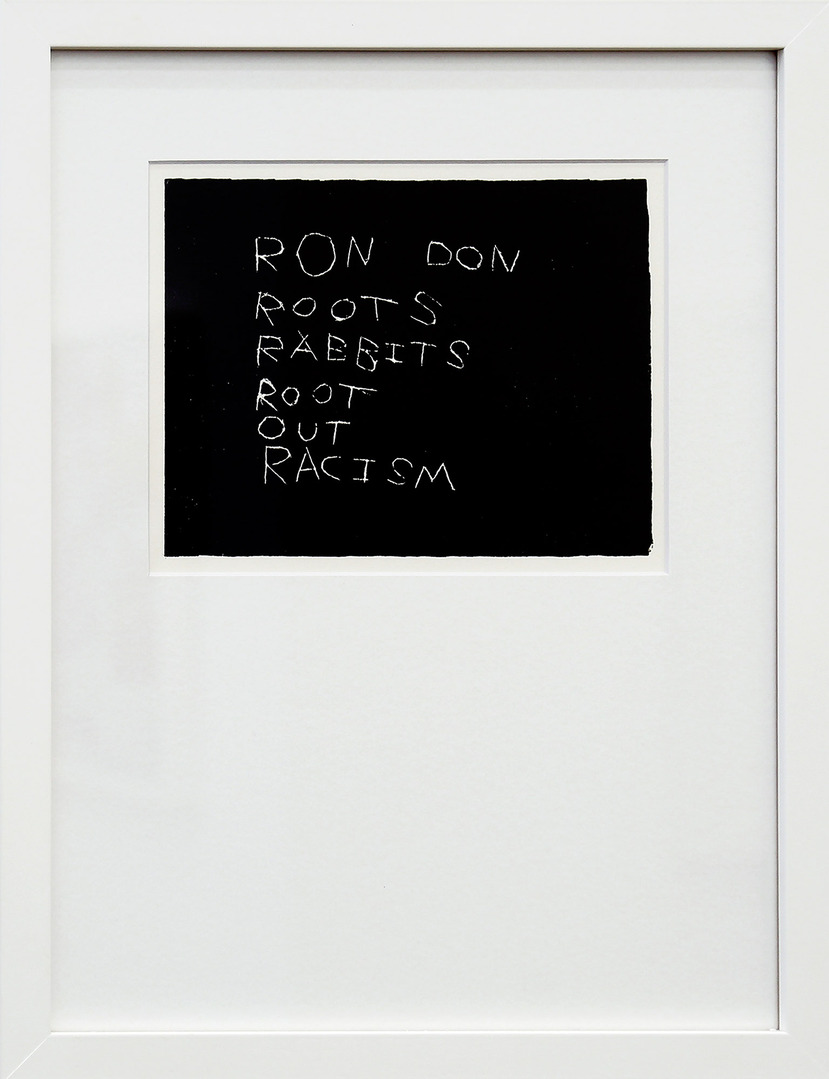 |
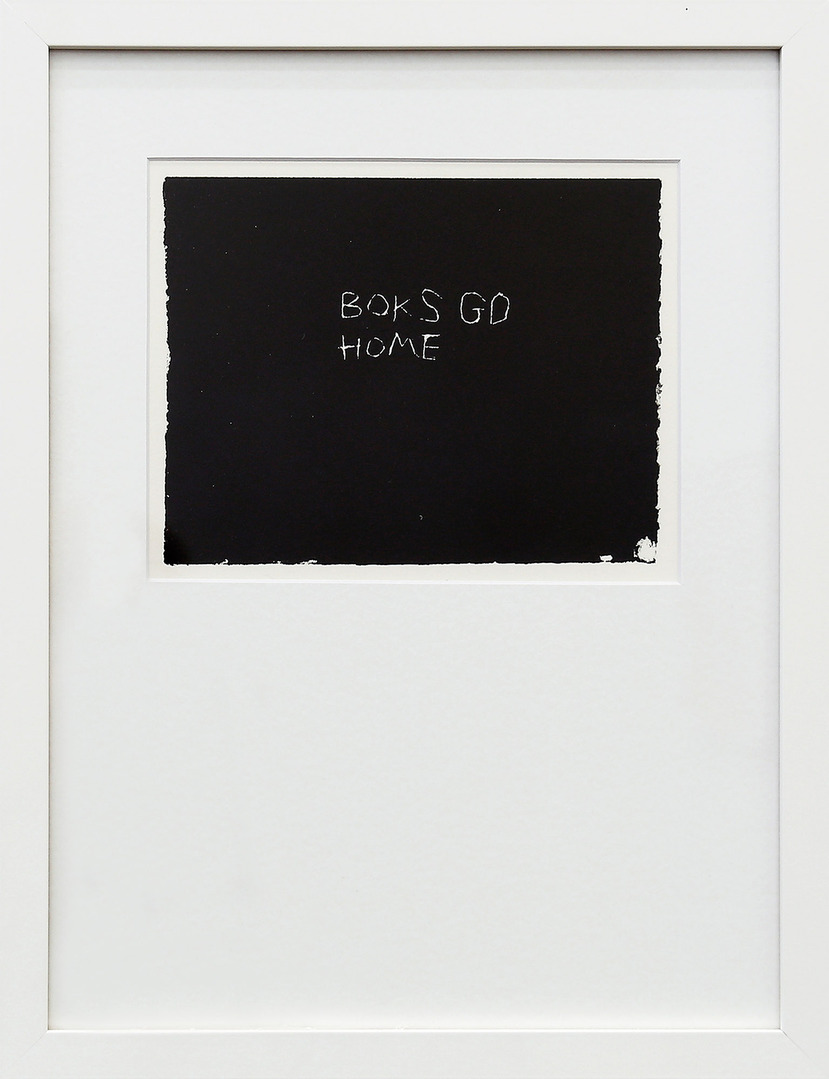 |
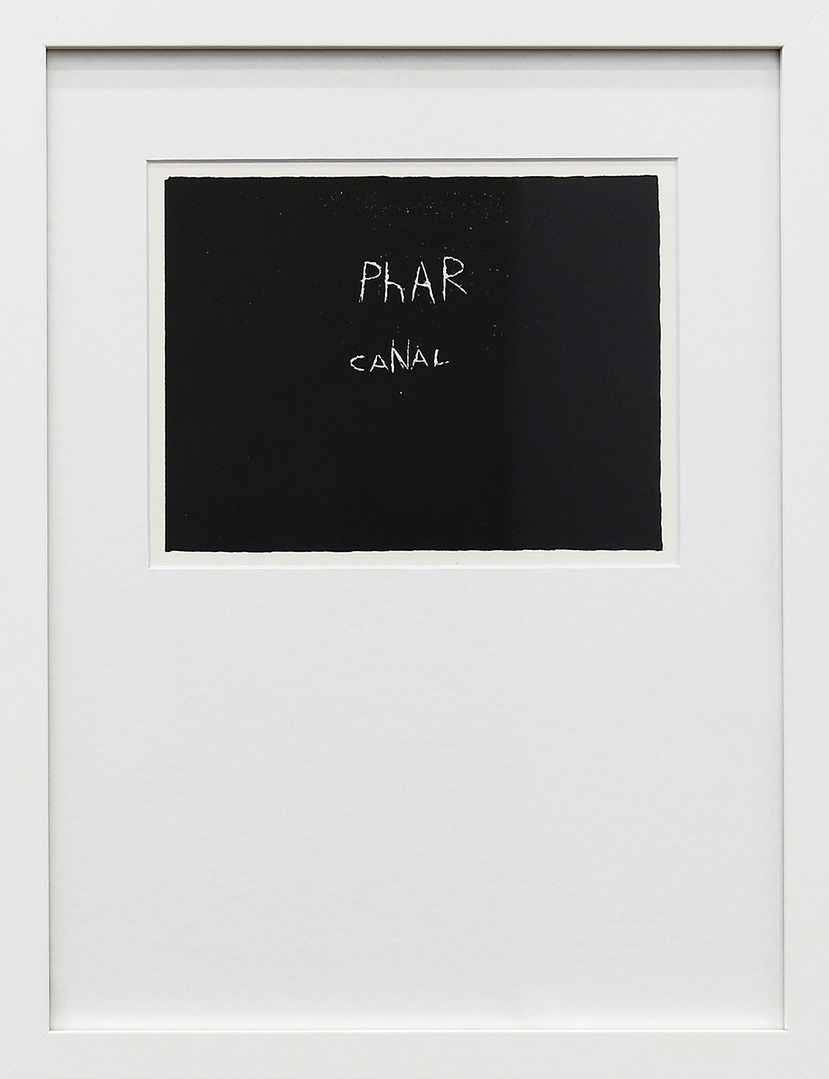 |
Sanjay Theodore
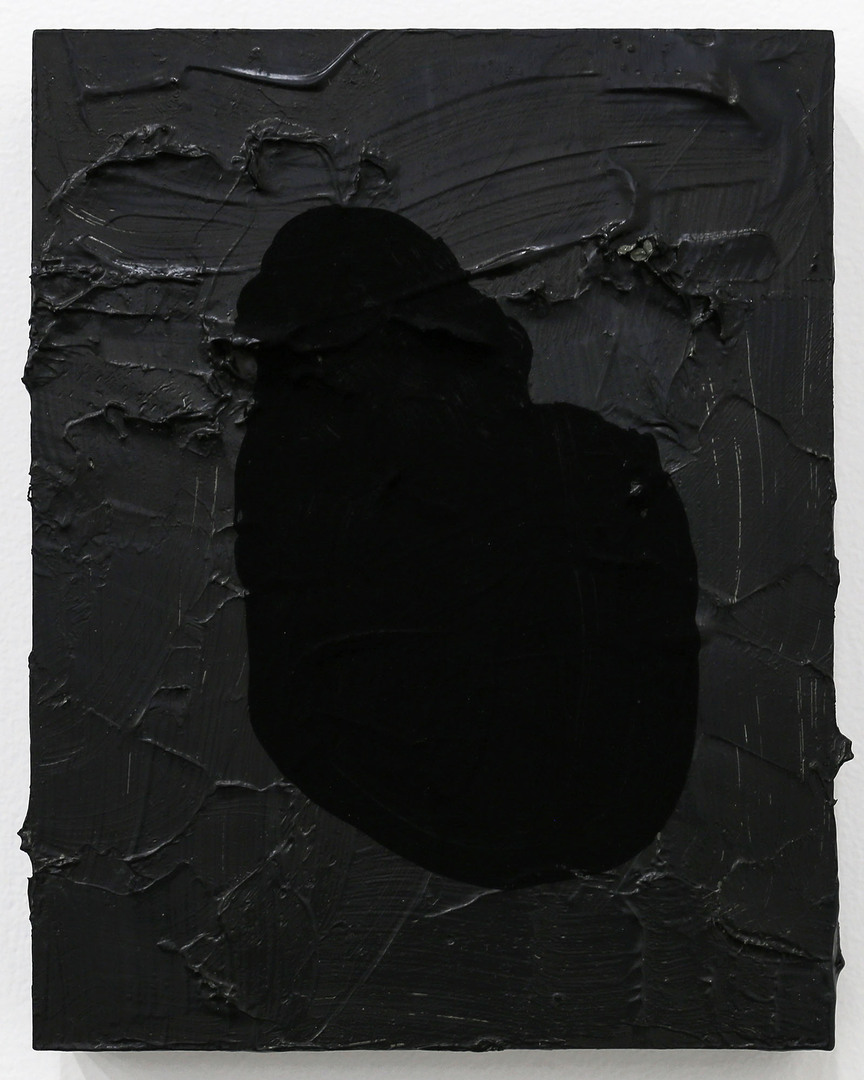 |
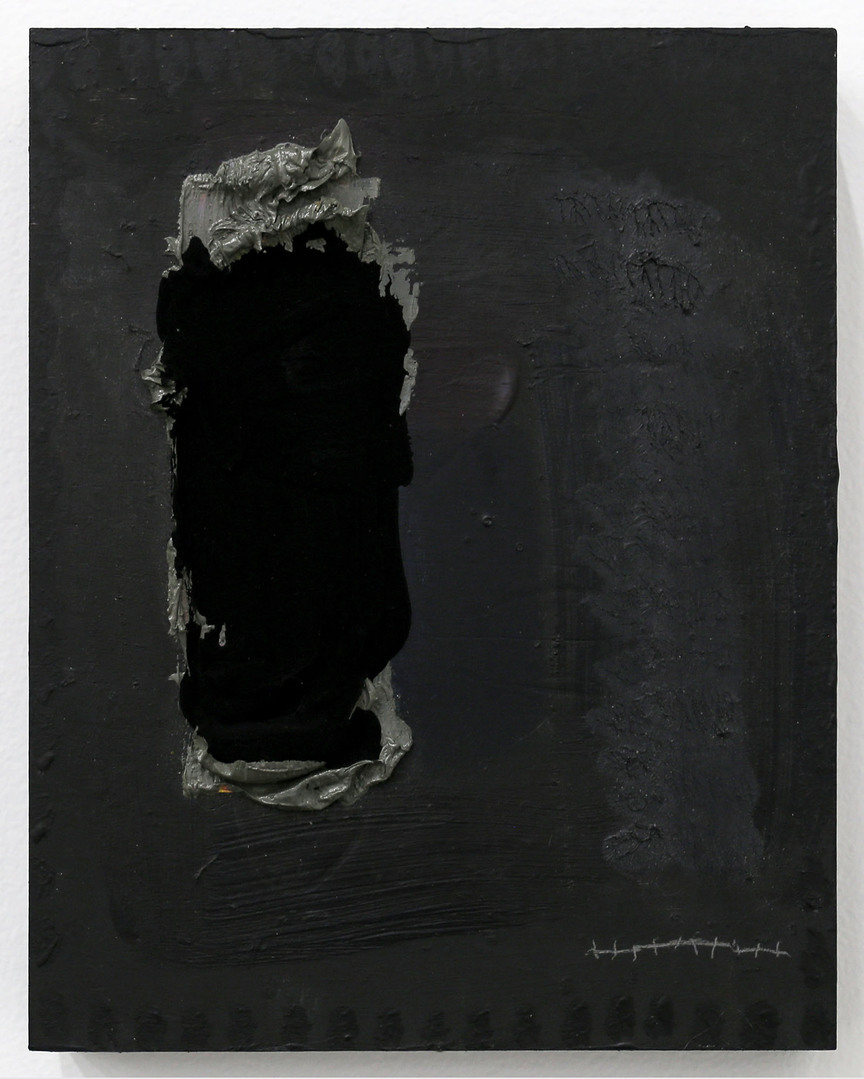 |
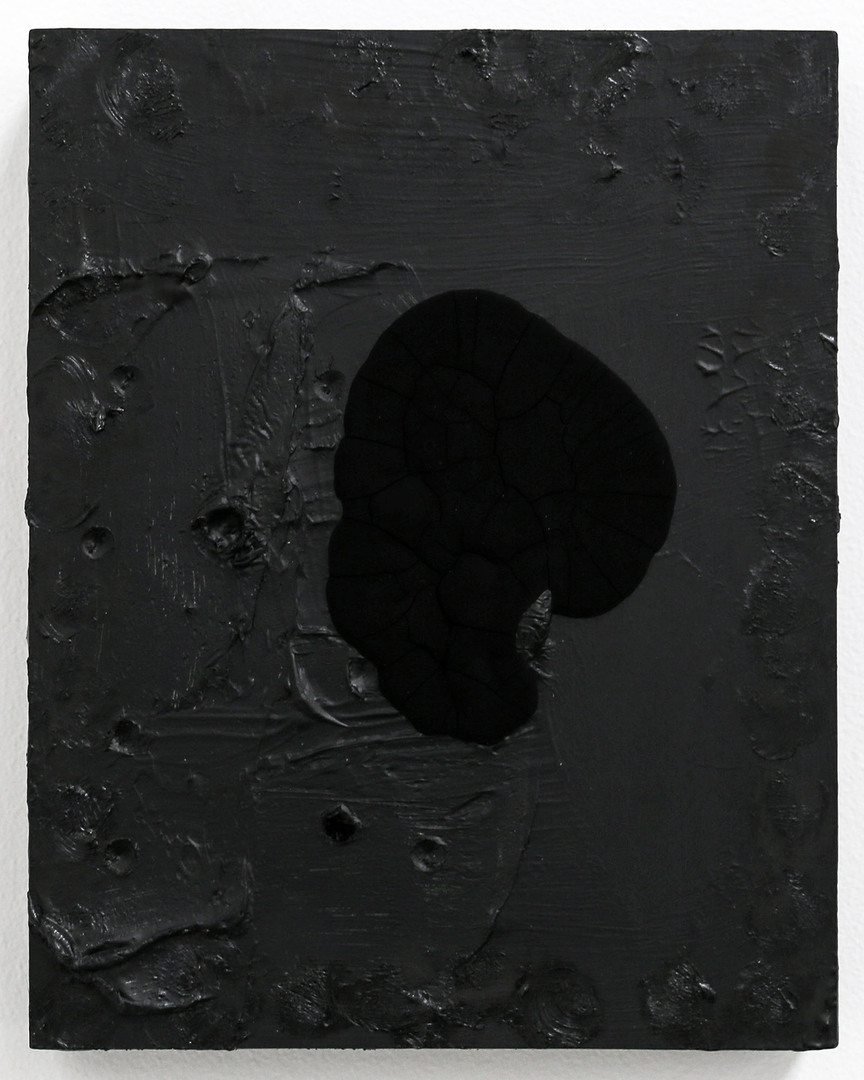 |

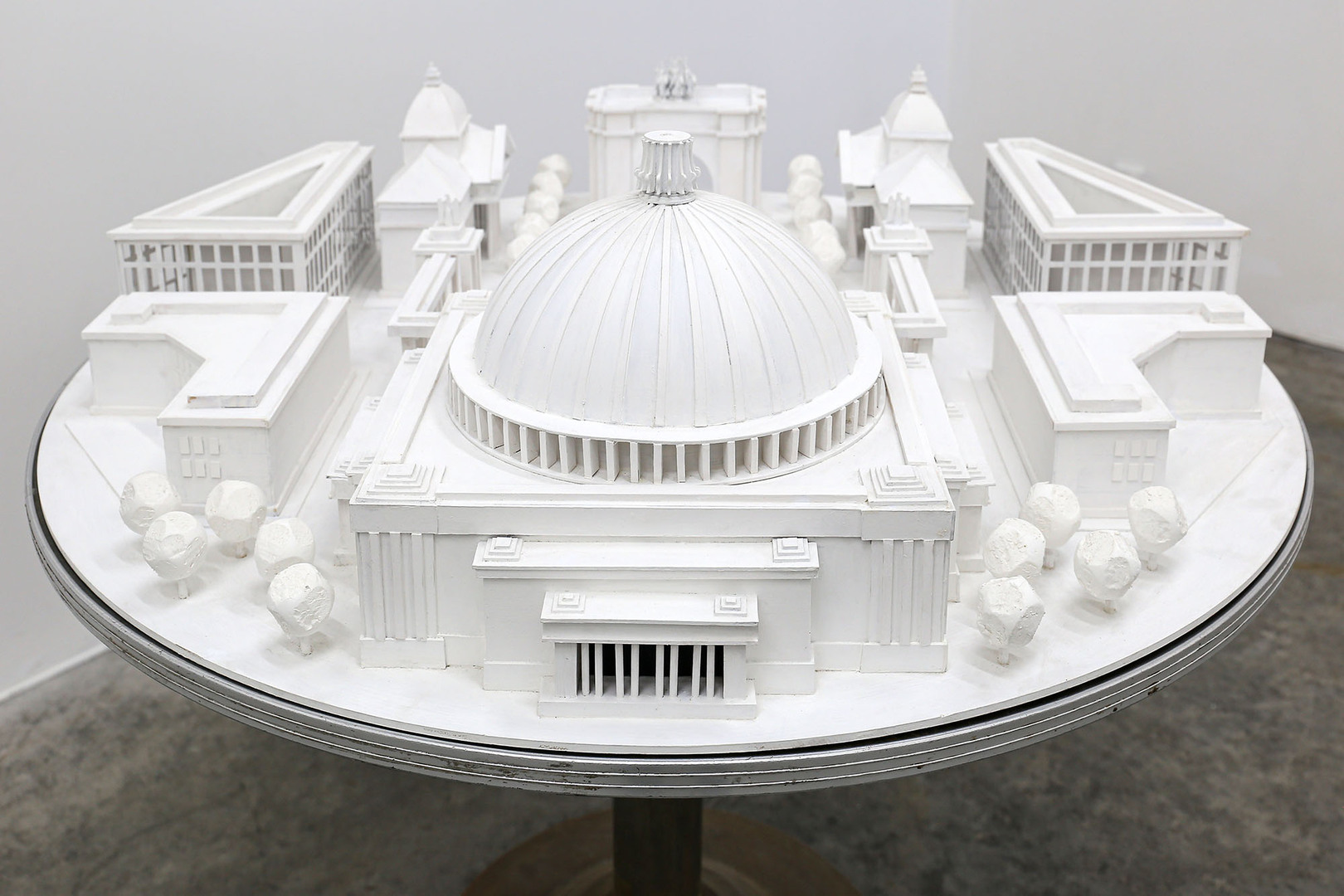
Mark Braunias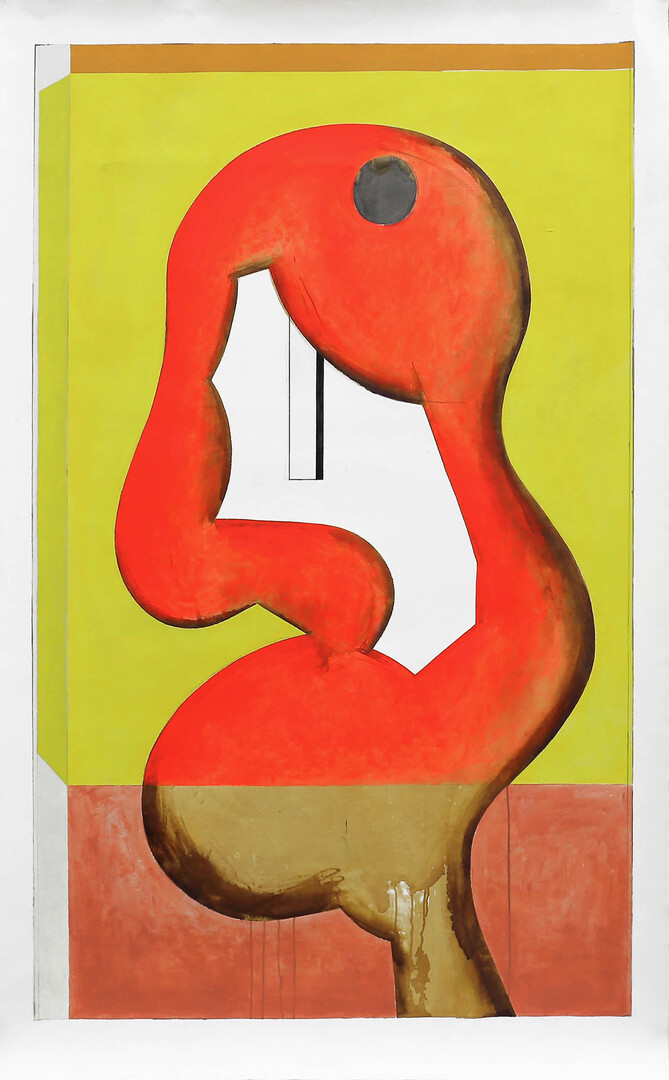
Review by Ben Curnow
Ben Curnow is an independent writer, art critic and curator, currently residing in Timaru, NZ. A former curator at the Museum of Contemporary Art, Sydney, and lecturer in Art Theory at AUT, Curnow has published extensively on contemporary art and art history.
IN SPITE OF MEANING
In a rather obliquely titled exhibition that asks us to “confront the tension between our desire for meaning and the reality of nature’s indifference”, Eugene Huston brings together a disparate selection of key contemporary artists’ works in his latest curatorial project at Jonathan Smart Gallery.
With its intellectual framing and slick presentation, ‘In Spite of Meaning’ is the sort of exhibition that you might as easily encounter in a public space. This reflects the important and perhaps growing role that dealer galleries play in presenting artists’ work to the public (sometimes extending to projects that may not be primarily commercial). At the very least, a curated exhibition such as this allows art to be seen in a context other than that of the stock room, and through a different lens than simply the dealer’s ‘eye’, while making a change from the familiar ‘roster’ of one-person shows.
Huston brings his own aesthetic to the gallery — perhaps most obviously in the prominence given to the digital ‘new media’ works of Hye Rim Lee, on one hand, and Jae Hoon Lee, on the other, together with Steve Carr’s more low-key “burnout” video piece. His flair for bringing together quite contrasting types of work — from Marie Le Lievre’s aleatory abstract painting to the inane phrases of Rob Hood’s woodcuts, and from the quietly obscure conceptualism of Sanjay Theodore to the Pop surrealism of the late Mark Braunias — is also essential to what makes the exhibition tick.
There is a profoundly intuitive aspect to the curatorial approach here, even while the language of the curator’s statement is overtly intellectual. Like some of the best independent curators, who are fundamentally enthusiasts in the field and ‘fellow travellers’ of the artists, Huston knows better than to subordinate the art to an over-worked rationale. The task is to create junctions and activate a field of ideas which, it is hoped, might lead to deeper levels of thought.
When Gertrude Stein penned the line, a “rose is a rose is a rose”, in 1913, it was shocking for many people, because in the tradition of the Romantic era a rose was always seen as a symbolic archetype. Suddenly, a rose was an actual rose. A similar twist seems to take place here, for example, in the sublime incomprehensibility of Jae Hoon Lee’s altered landscape images. “In recognising the ‘impossible meaninglessness’ of nature”, Huston suggests, “we may find ourselves more attuned to the raw beauty of the world around us, appreciating it for what it is rather than what we wish it to signify”. Meaning, in other words, gets in the way of seeing.
BC
2024
inkjet print on Hahnemühle photo rag, ed 2/5, 2APs
1140 x 1140mm framed
Exhibited in
In Spite of Meaning
2008 - 2025
3’ 17” loop, 4K 3D animation
ed 1/7, 2APs
Exhibited in
In Spite of Meaning
2022
C print on photographic paper, ed 1/5, 2APs
1200 x 652mm framed
Exhibited in
In Spite of Meaning
2022
C print on photographic paper, ed 1/5, 2APs
1200 x 652mm framed
Exhibited in
In Spite of Meaning
2020
chromira print on matt photographic paper, ed 2/3
2600 x 1180mm unframed
Exhibited in
In Spite of Meaning
2020
inkjet print on photo rag, ed 1/3
1830 x 1250mm framed
Exhibited in
In Spite of Meaning
2017
chromira print, ed of 3
960 x 1650mm framed
Exhibited in
In Spite of Meaning
2022
4 min 10 sec single channel digital video with sound
ed 2/3
Exhibited in
In Spite of Meaning
2019
oil & graphite on canvas
1150 x 1150mm
Exhibited in
In Spite of Meaning
2017
enamel paint on epoxy resin, fibreglass, & found objects
800 x 520 x 500mm
Exhibited in
In Spite of Meaning
2017
enamel paint on epoxy resin, fibreglass, & audio components
1000 x 900 x 180mm
Exhibited in
In Spite of Meaning
2009
4 min 54 sec single channel digital video
ed 3/3, 2APs
Exhibited in
In Spite of Meaning
2010
LED print, ed of 3
720 x 720mm framed (image size 490 x 490mm)
Exhibited in
In Spite of Meaning
2007
woodcut on paper, 10 of 10
430 x 330mm framed
Exhibited in
In Spite of Meaning
2007
woodcut on paper, ed of 10
430 x 330mm framed
Exhibited in
In Spite of Meaning
2007
woodcut on paper, ed of 10
430 x 330mm framed
Exhibited in
In Spite of Meaning
2016
painted wood, made with the assistance of Richard Gardiner
1220mm diameter
Exhibited in
In Spite of Meaning
2025
oil & acrylic on board
255 x 200 x 43mm
Exhibited in
In Spite of Meaning
2025
oil & acrylic on board
255 x 200 x 43mm
Exhibited in
In Spite of Meaning
2025
oil & acrylic on board
255 x 200 x 43mm
Exhibited in
In Spite of Meaning
2024
acrylic on unstretched canvas
2100 x 1300mm
Exhibited in
In Spite of Meaning